
When things aren't flowing smoothly, your body may just need that extra push. To put it bluntly, your poop may need some extra assistance. Occasional constipation, characterized by hard or small tools, straining to go, belly bloating or having fewer bowel movements than usual, is more common than you might think.
The ability to poop can be influenced by a number of factors, from a change in diet to not getting enough water, fiber or iron. Not being able to pass stool can also be a result of aging, pregnancy or even our monthly menstrual cycle. But because pooping is so important, it's necessary we do what we can to get our body back on track. Passing stool is super important since it's the body's natural way of cleansing our systems by removing waste, toxins and hormones.
More from MamásLatinas: High fiber superfoods that will free you of constipation
If our bodies aren't releasing harmful toxins, it's housing them and we're creating a path for sickness or infection. When food isn't exiting the way it should, this can stimulate the growth of dangerous pathogens like bacteria or fungi. Chronic constipation can also deplete energy levels and even lead to chronic inflammatory conditions.
But luckily, there are a ton of ways you can get your system back on the right foot. While you can head to the pharmacy and buy harsh laxatives that will have you on the toilet all night, a better way might be to opt for a home remedy that will gradually get you back on track. Some of these, like a cup of yogurt, you can find right in your kitchen. The key is to make sure your diet is high in fiber, drink plenty of fluids, and manage your stress as best you can.
Here are 20 remedies using common ingredients that you can try to soothe your digestive tract the next time you're constipated.
Apple cider vinegar is good for more than just cooking and dressing a salad.
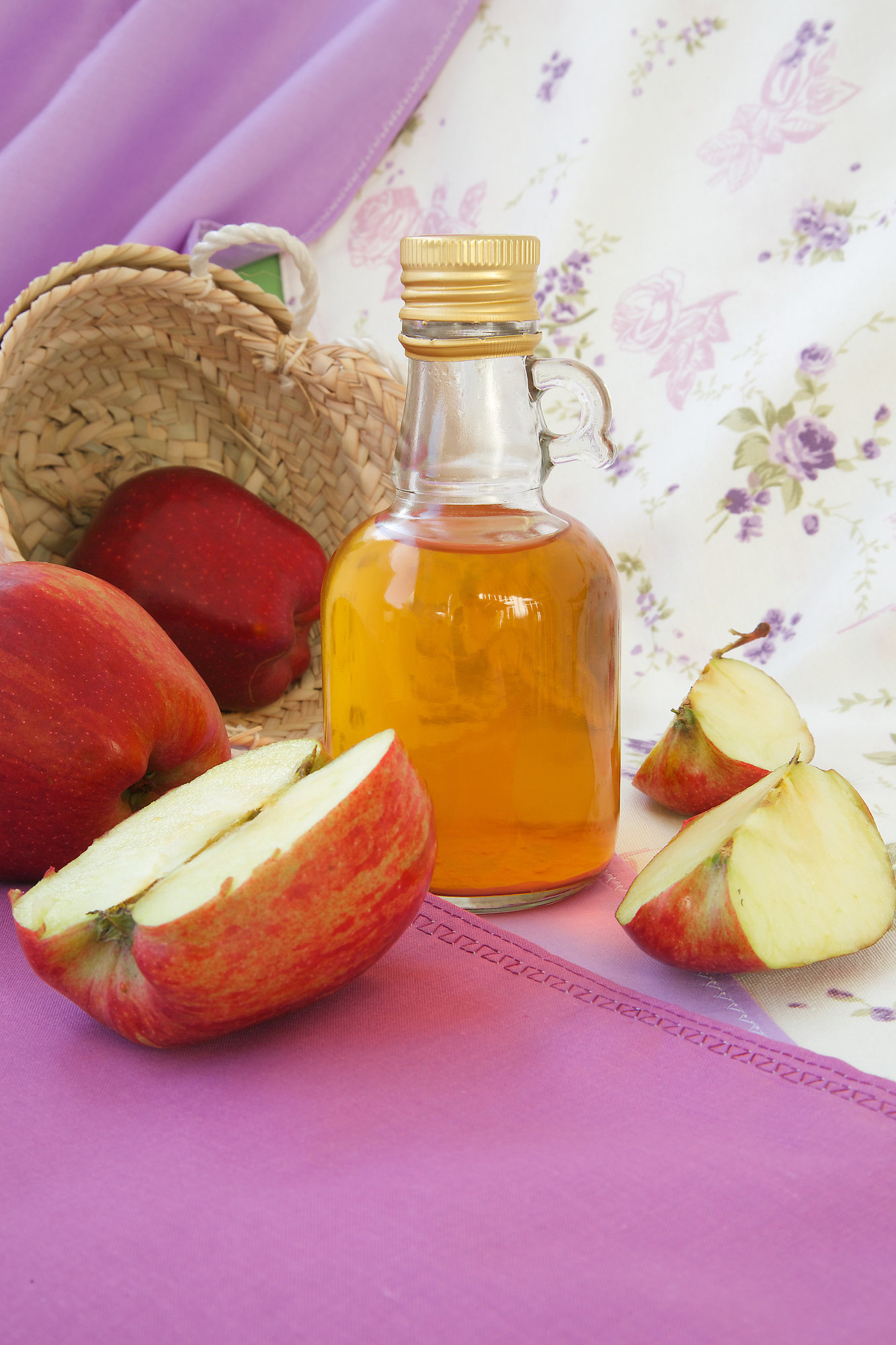
This miracle ingredient has a ton of disease-fighting elements like vitamins, amino acids and polyphenolic compounds that help your body stay healthy. Apple cider vinegar can also help maintain healthy pH levels within the body that support stimulation of the liver and detoxification. You can use it as a mild natural laxative to get your body going.
Add some apple cider vinegar to a glass of water to support your digestive system.
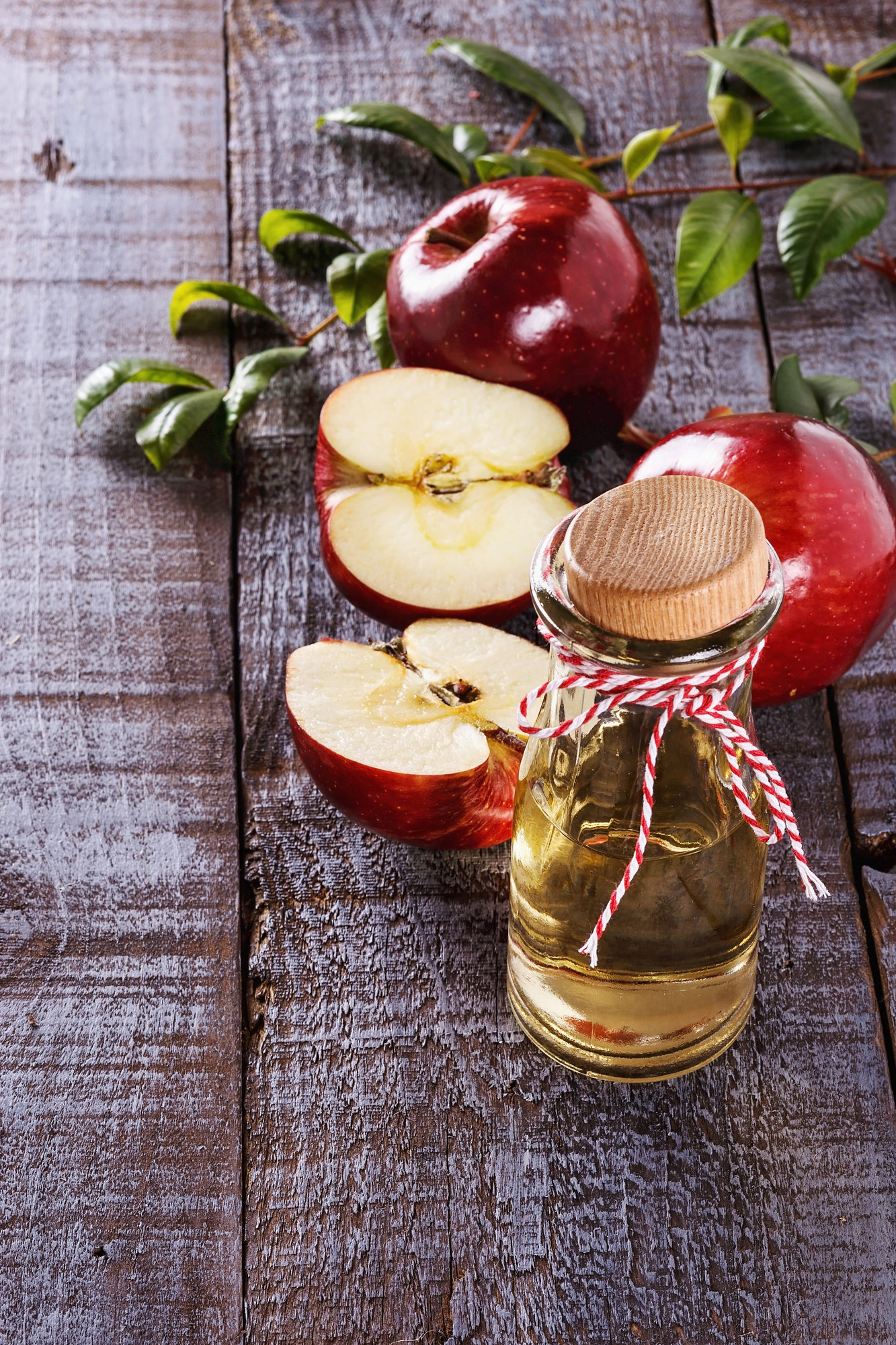
Since there isn't enough research on using apple cider vinegar as a constipation relief tool, there isn't any specific recommended dosage. But proponents who say this remedy definitely works recommend adding 1-3 teaspoons of apple cider vinegar to a glass of water once or twice a day, preferably between meals. In order to get the micronutrients your body needs, the vinegar must be raw and organic.
Contrary to popular belief, prunes aren’t just good for older adults.
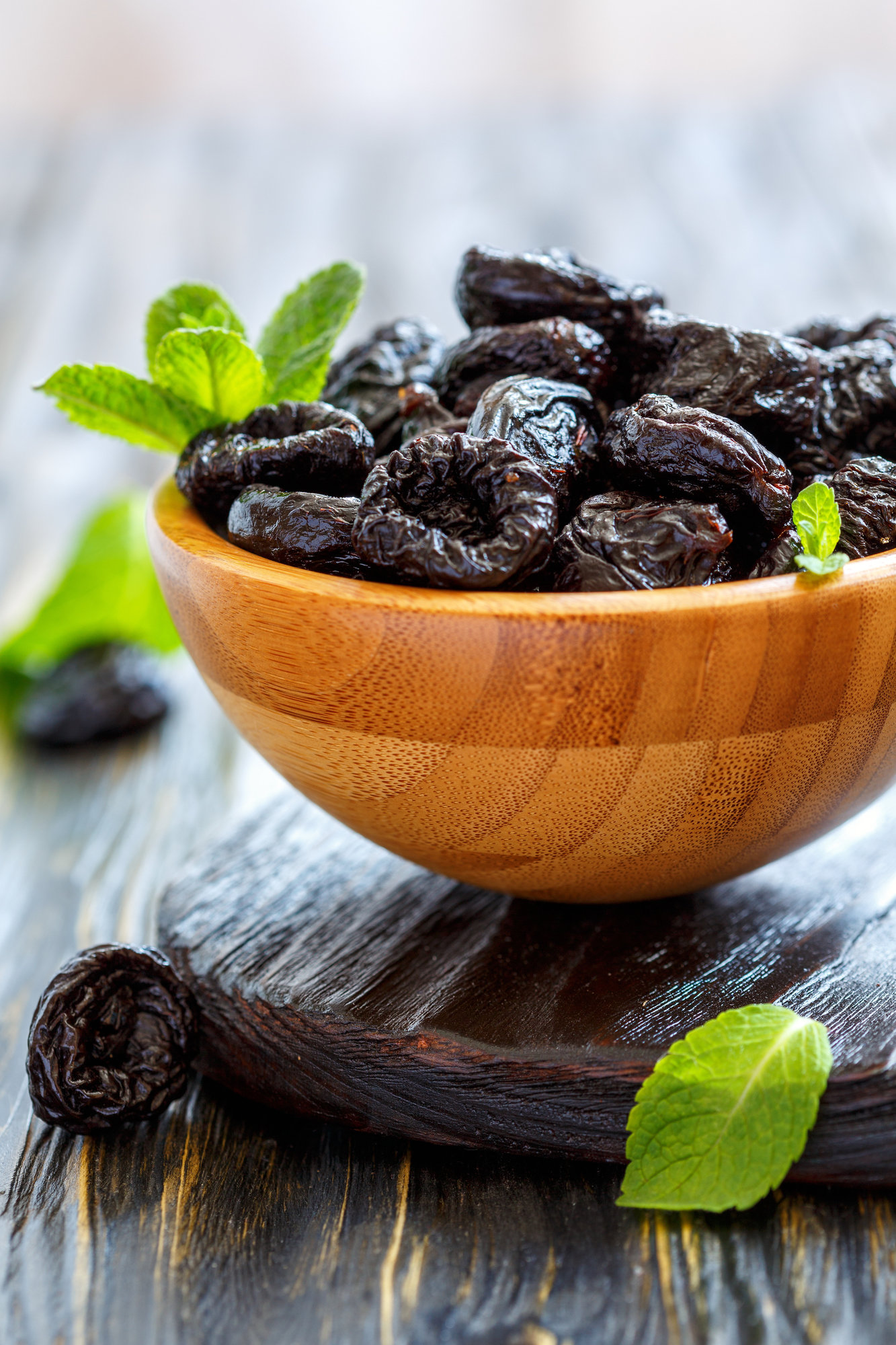
Prunes are dried plums that contain many nutrients and are especially high in fiber. They're also a good source of iron and can aid the body in ways such as controlling the urge of an overactive bladder, reducing cholesterol and appetite and lowering blood pressure. Taken as a juice, it also acts as a laxative due to its high sorbitol content.
Incorporating prunes into your diet can be easier than it seems.
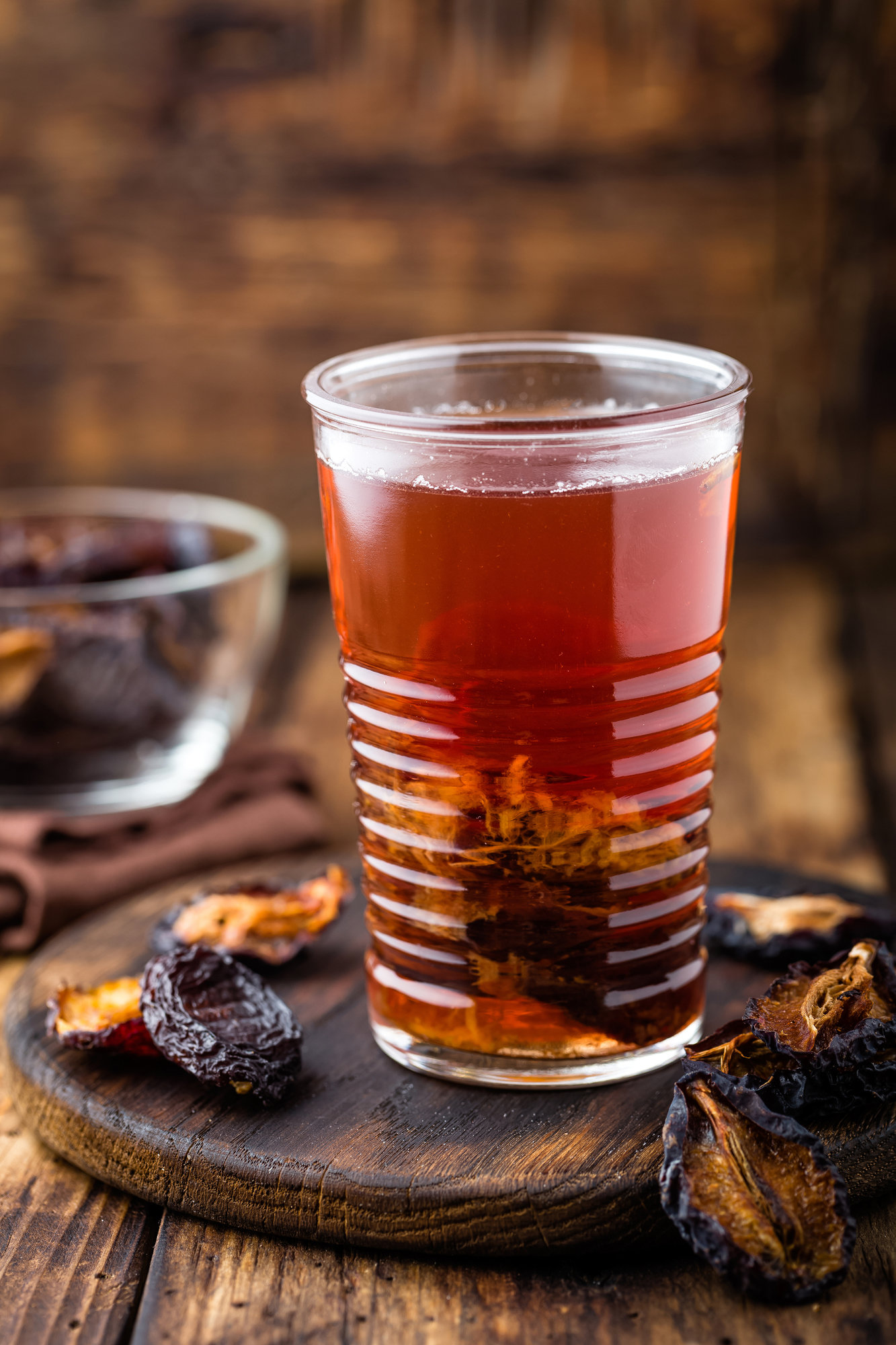
The fiber in prune juice keeps the body's digestive system working properly. Some ways you can consume prunes include adding them to your breakfast oatmeal, eating the fruit as a snack, blending the fruit or juice into smoothies or shakes, mixing them into a trail mix, or puréeing them into a tasty jam.
Soak in a bath with baking soda or take it orally to relieve the symptoms of constipation.
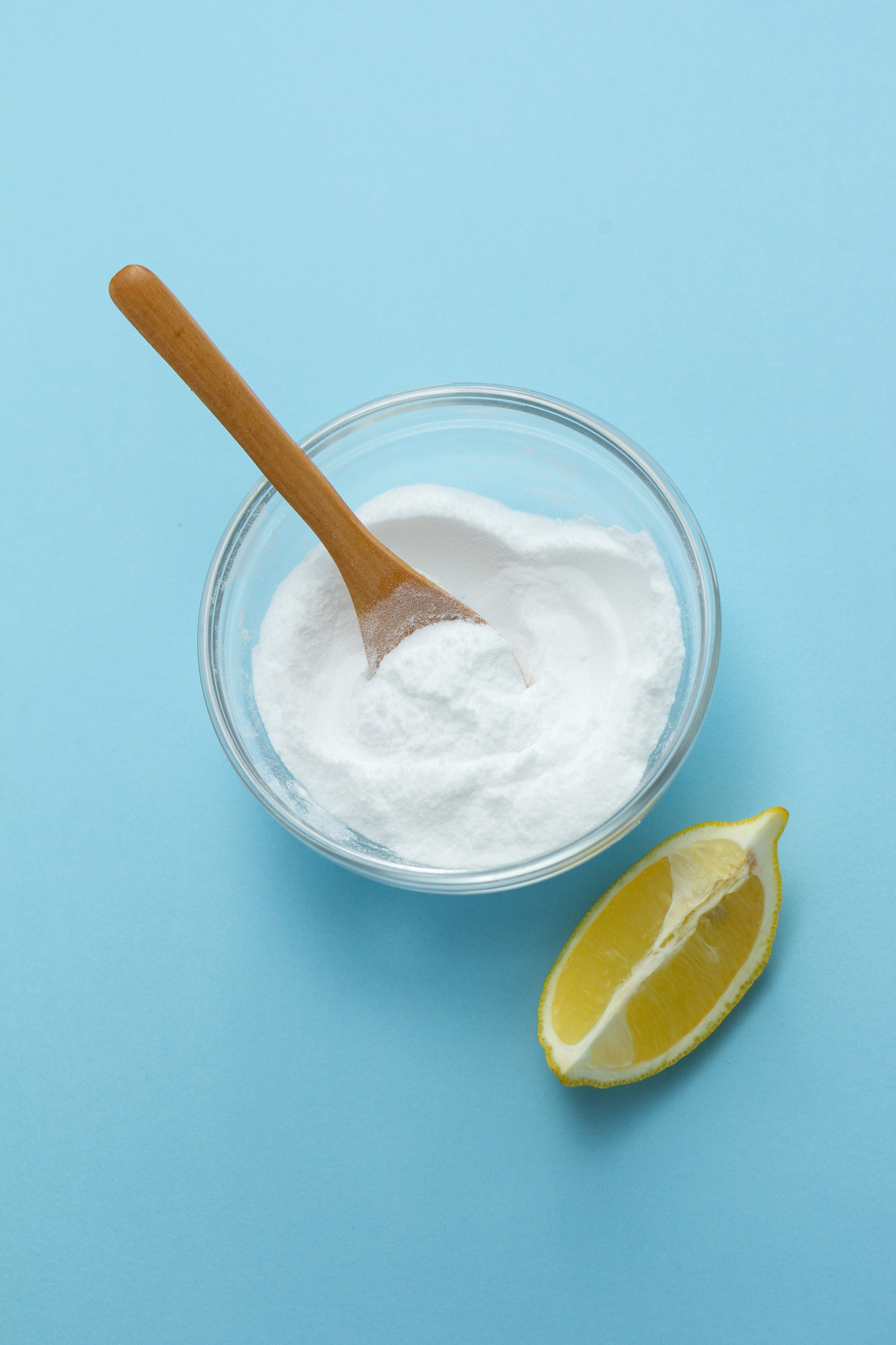
Mix a small amount of baking soda with water and salt and drink it to get the process of osmosis going. Osmosis causes water to be pulled into the intestines, softening stool and increasing volume. You can also mix 2 ounces of baking soda into a tub full of warm water and soak in it for 20 minutes. The water will help relax the anal sphincter and possibly induce a bowel movement.
Baking soda is an inexpensive must-have in your home.
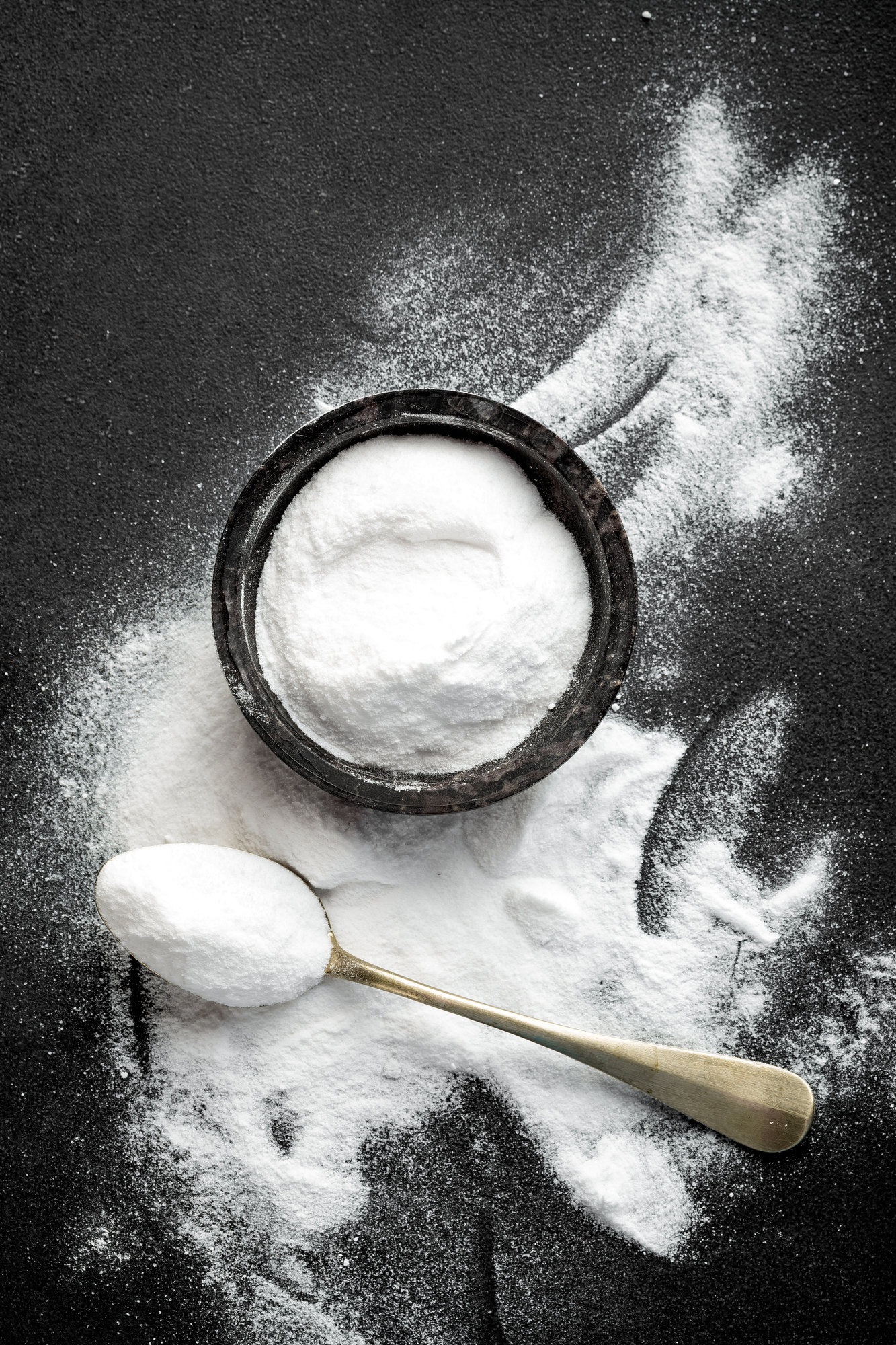
Also known as sodium bicarbonate, the uses of baking soda are endless. It can be used as an air freshener, to neutralize fridge odors, help whiten teeth and laundry and even function as a kitchen cleaner. But for those dealing with constipation, it's also useful to keep the digestive system running smoothly, since it can neutralize stomach acid.
The leaf and oil of the peppermint plant can be used as a natural home remedy.
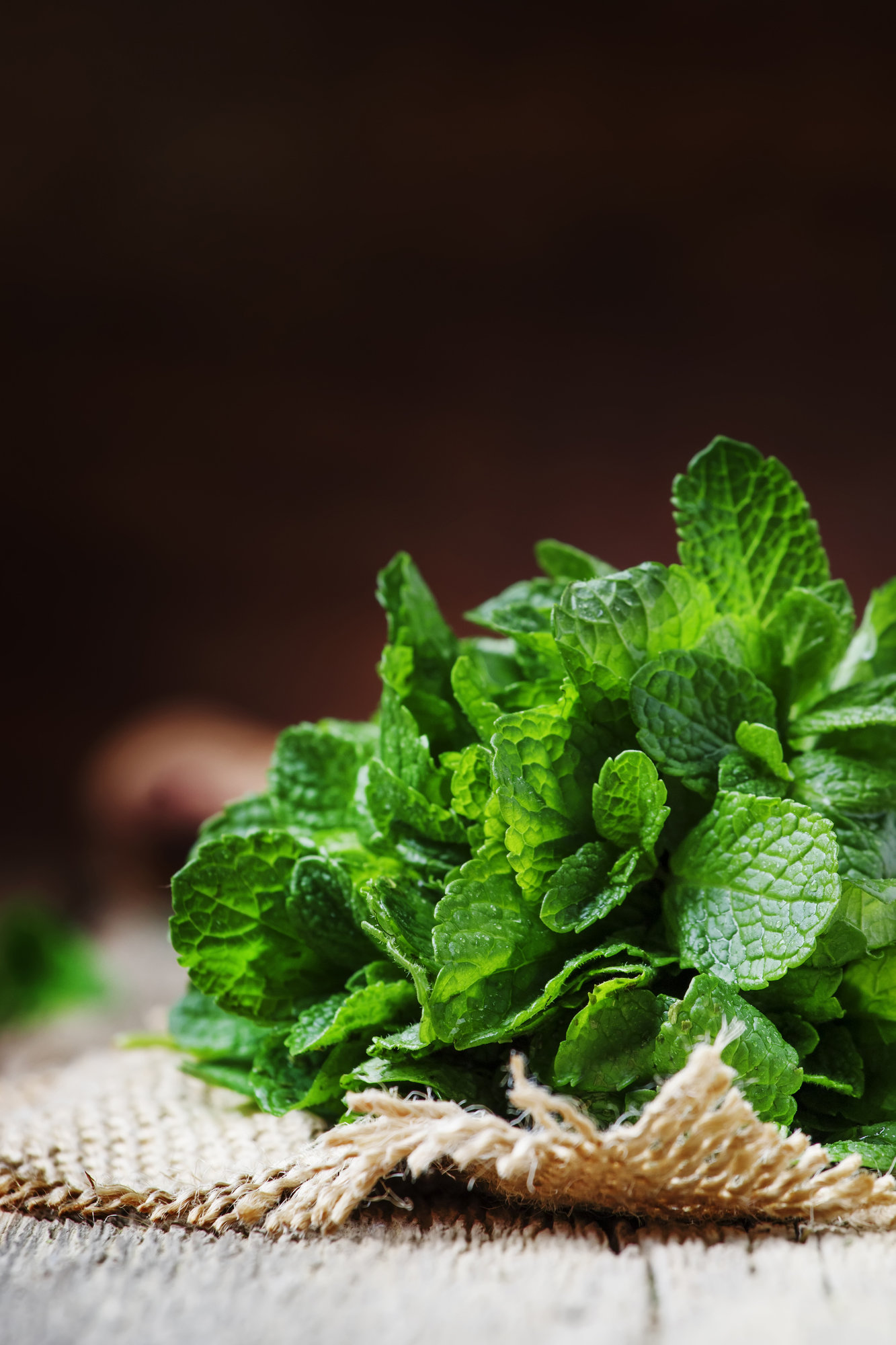
Peppermint oil can be taken in several ways including as a tea and topically, as an oil. It can be used for a host of digestive problems including irritable bowel syndrome, diarrhea, upset stomach and heartburn. Applied to the skin as an oil, it creates surface warmth that can reduce spasms in the digestive tract.
Peppermint essential oil can make the bowels looser by relaxing muscles in the digestive tract.

To get the benefits of peppermint essential oil, you can inhale it or apply it directly to the skin. To do either, you should combine the oil with a carrier oil, like grapeseed or coconut oil and massage it onto the abdomen. The abdominal massage may increase movement of the bowel.
Herbal teas can function as more than just tasty beverages.

Herbal teas have long been used as a form of alternative medicine. They pack a ton of health benefits that include treating stomach issues, aiding in weight loss and relaxing your muscles. The type of tea you drink (some include chamomile, peppermint and eucalyptus) will determine what conditions it can target.
Teas can help you avoid constipation by helping you meet your daily fluid requirements.

The more hydrated you are, the more moisture remains in your stool since your intestines are better lubricated. Several teas, like senna, dandelion, cascara and peppermint, help target constipation. Teas marketed as laxatives will probably instruct you to drink one cup before bedtime, but be sure to always check the package or speak to your doctor.
Lemon water is the ultimate simple fix.

Adding lemon to your water is an easy way to stock up on antioxidants, like vitamin C, that protect your body's cells from free radicals. Lemon water promotes hydration and can be used as a daily morning remedy to help prevent constipation. It serves as a great addition to water for people that struggle to drink it since the lemon enhances the water's taste.
Lemon can help flush toxins from the body, resulting in constipation relief.

The citric acid in fresh lemon juice can stimulate the digestive system. To prevent constipation, you should squeeze a fresh lemon into a glass of water or tea every morning. If you want to make the lemon water a little more tasty, you can also infuse it with sprigs of mint, fresh ginger, cinnamon, honey or maple syrup.
Aloe vera plants contain properties that can soothe the digestive tract.

When taken internally, the plant can balance high blood sugar, ease constipation and may even have anti-inflammatory uses. Both aloe vera juice and the gel can be used as bowel stimulants. However, it's important to speak to your doctor before using aloe as a remedy since it may lower blood glucose levels and reduce the effectiveness of certain medications.
For constipation relief, take aloe juice or gel twice a day.

For prepared aloe juice, you can go to your local health food store and take one cup of it when you wake up and another before you go to bed. You can also prepare your own aloe drink by taking two tablespoons of the gel, found in the aloe plant's leaf, and mixing it with your favorite juice. Avoid aloe latex, which is the yellow substance right beneath the skin of the plant, as it can have harmful effects on the body.
Sesame seeds have the highest oil content among all seeds and can useful in maintaining a healthy digestive system.
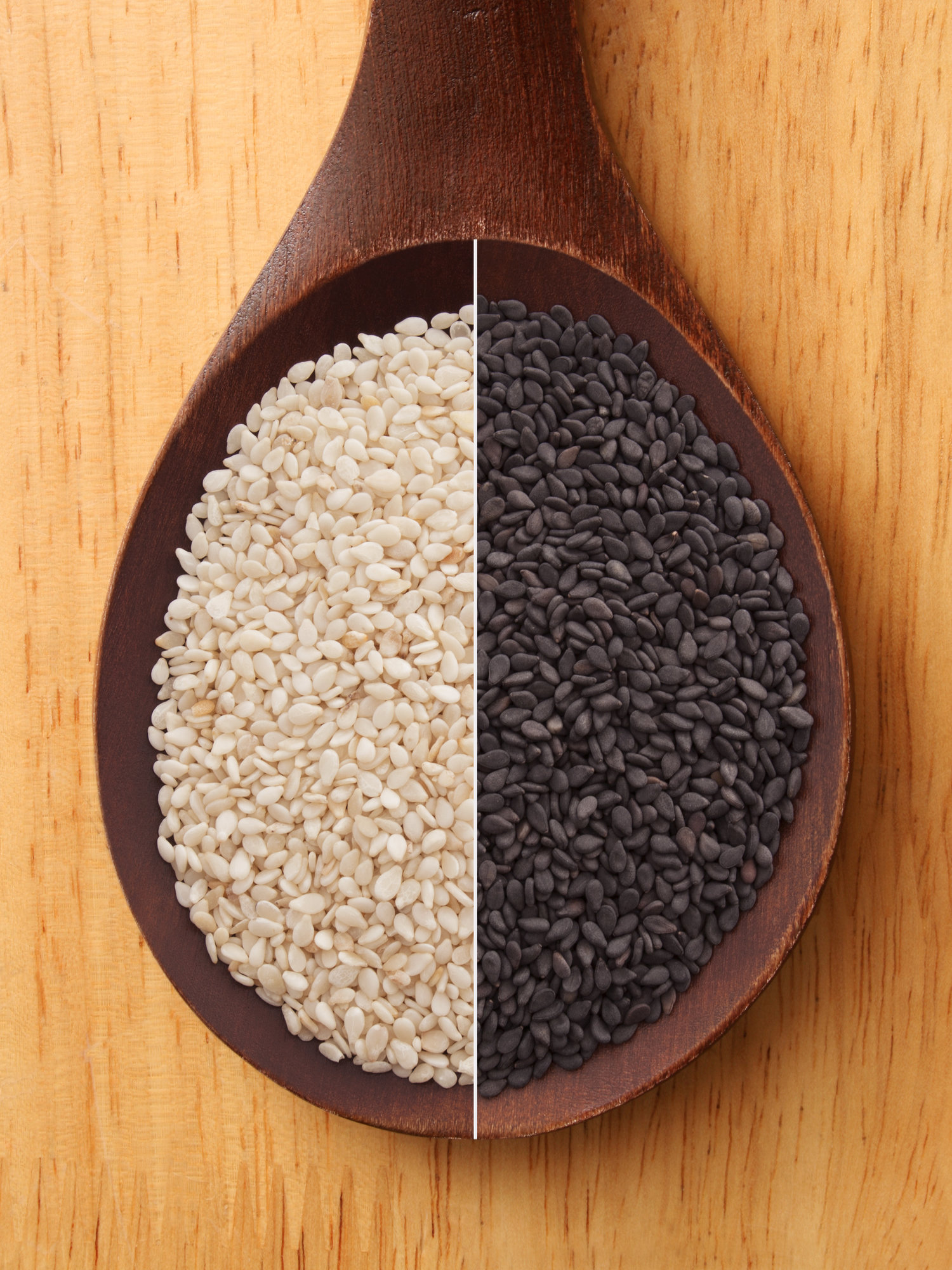
Because they're high in phytonutrients, antioxidants, vitamins and dietary fiber, sesame seeds hold many health benefits. They can aid in cardiovascular health (including the lowering of bad cholesterol), combat diabetes and promote bone health. The fiber also helps support a healthy colon.
The high fiber content also helps keep the intestines running smoothly.
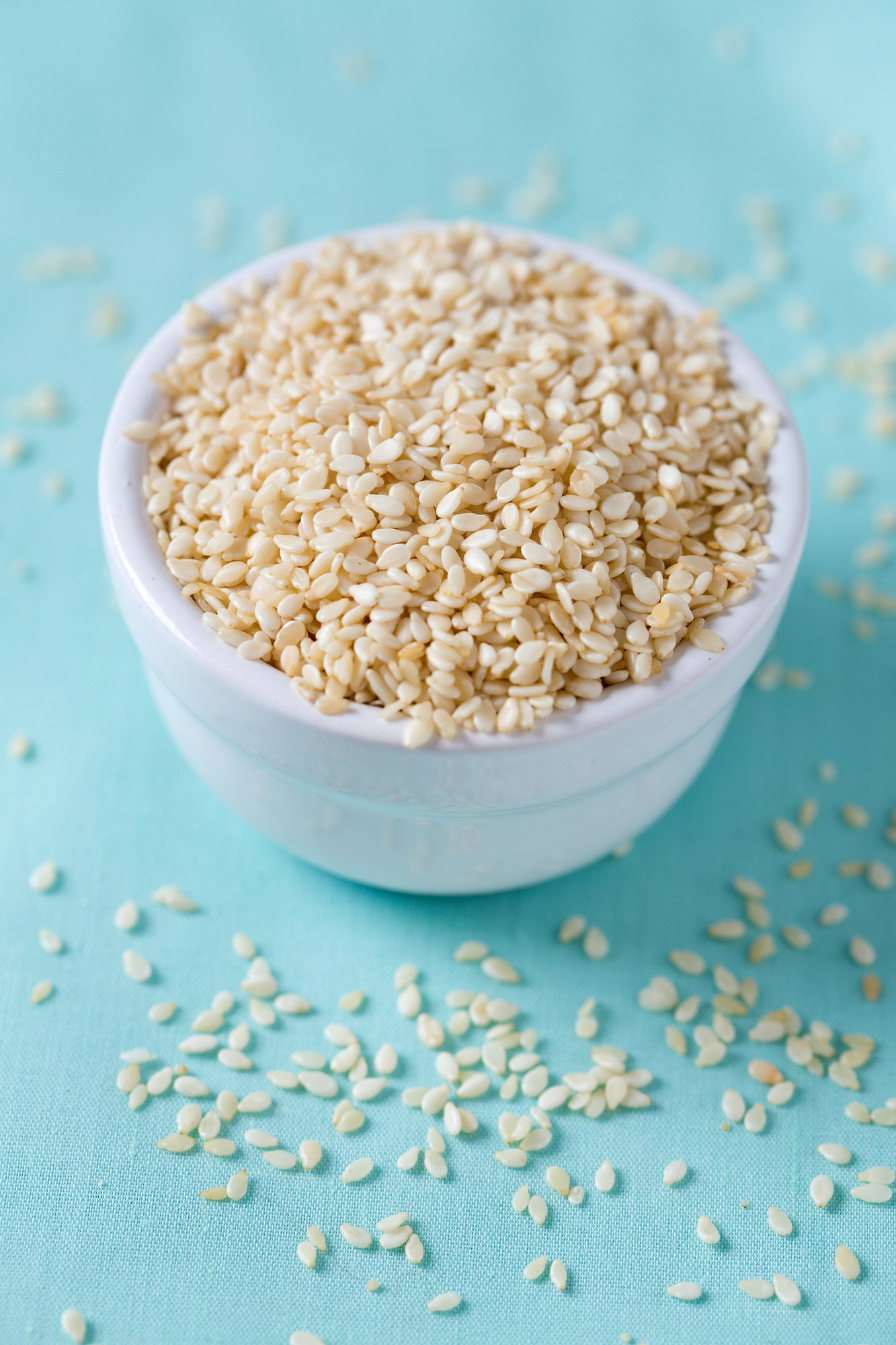
Healthy intestines facilitate waste disposal. The oily nature of sesame seeds can moisturize the intestines to prevent dry stools. To add these to your diet, you can throw them into cereals or salads or turn them into a powder that you can sprinkle onto foods, like a tasty seasoning.
Not only does garlic add flavor to food, but it also supports a healthy heart and colon.
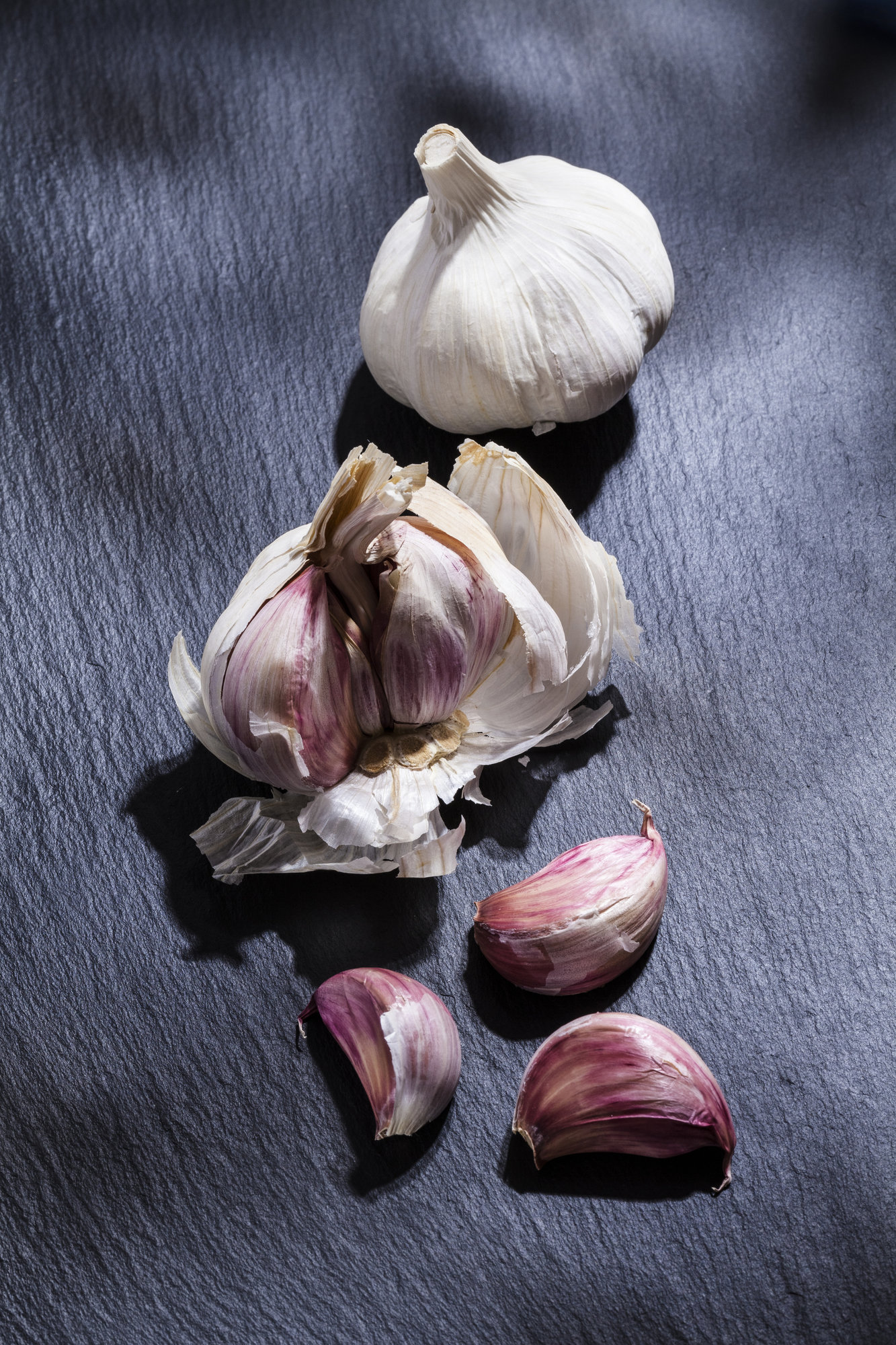
Because of its antibacterial and antiparasitic properties, garlic can remove harmful toxins, pathogens and parasites from the colon. A clean colon supports digestion and the absorption of nutrients. Other benefits of consuming garlic include the prevention of plaque buildup in arteries that can lead to heart attack or stroke.
To ease constipation, garlic can be taken in a variety of ways.
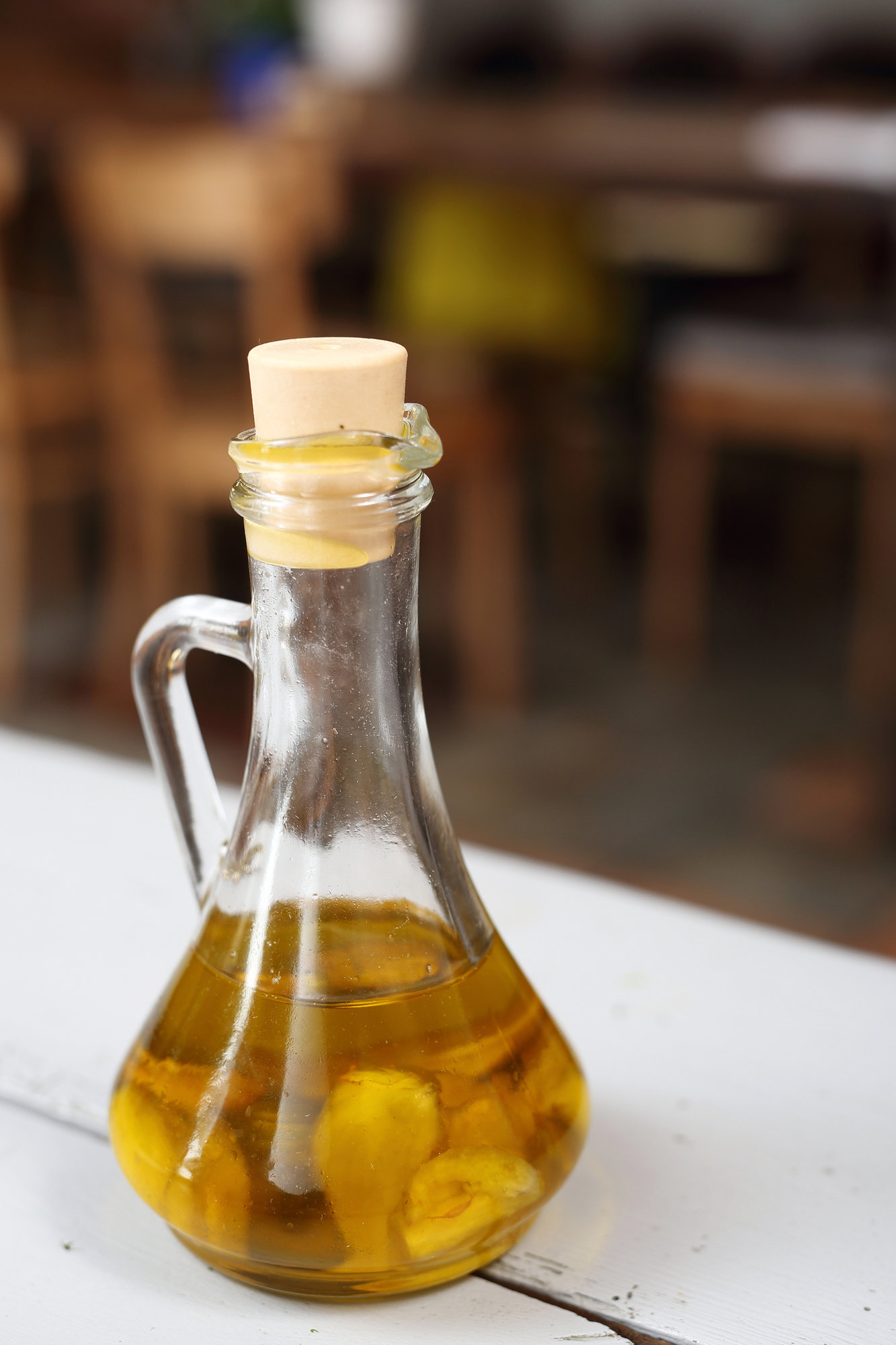
Garlic can be taken as an oil that's added to salads or stews. You can also mince fresh garlic cloves and take up to 4g a day by adding it to foods or by mixing it with a spoonful of honey and swallowing it. Another way to consume the garlic is by taking 4 to 5 cloves and letting it soak in a bottle of olive oil for 2 to 3 days. The garlic-infused oil can then be added to foods.
Flaxseeds make a great addition to your diet if you want to promote regular bowel movements.
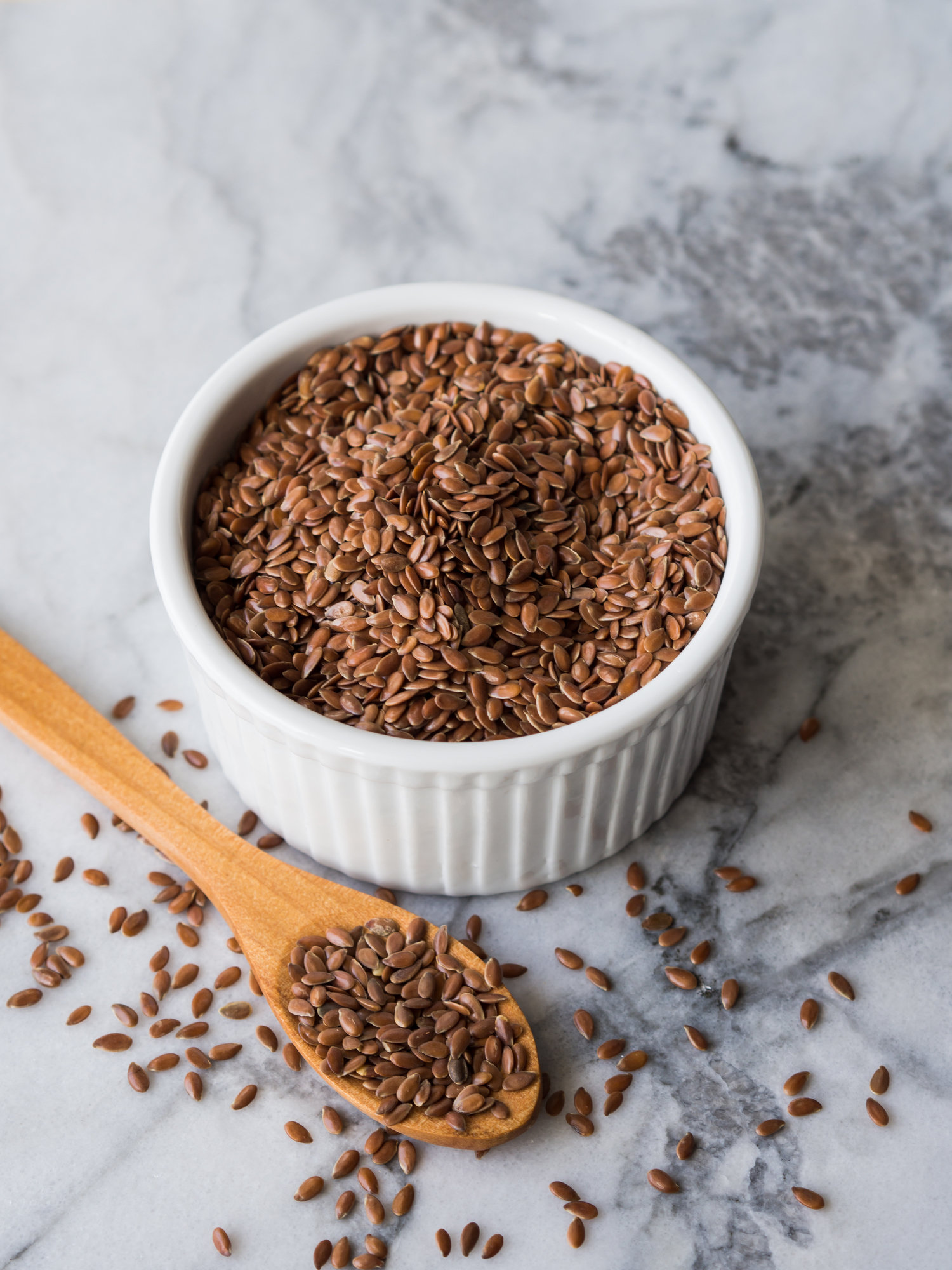
Flaxseeds are packed with soluble and insoluble fiber. Both help support healthy digestive health, but insoluble fiber allows more water to bind to your stool, resulting in softer and thicker poop. This helps prevent constipation and particularly aids those who suffer from irritable bowel syndrome.
You can easily incorporate flaxseed into your diet by adding it to your everyday meals.
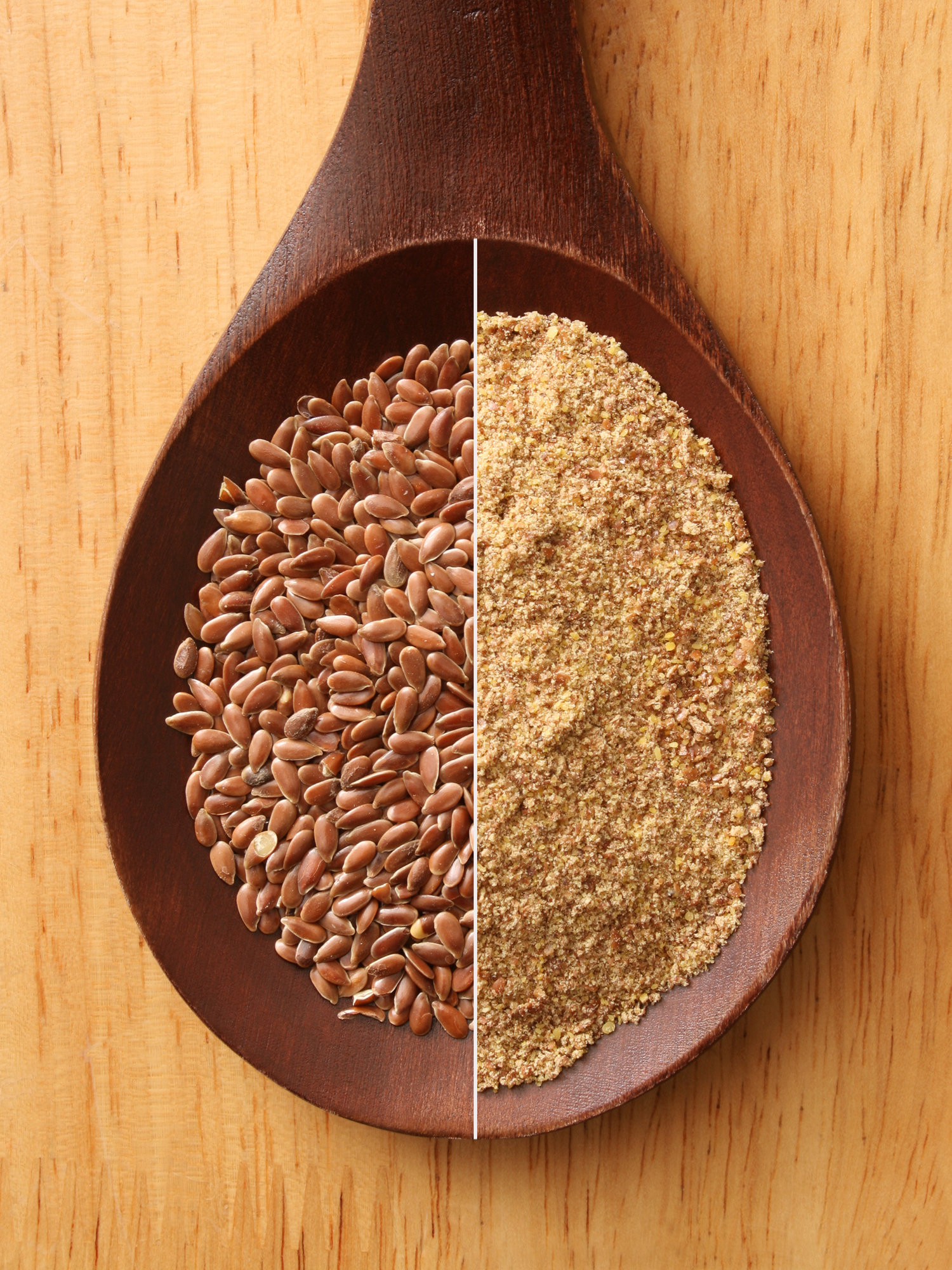
Taken grounded, one tablespoon can be added to hot or cold breakfast cereal or thrown into an 8-ounce container of yogurt. A teaspoon of ground flaxseed can also be added to mayonnaise or mustard before dressing a food item or baked into goods like cookies, muffins or breads. It should always be taken with lots of water or another fluid.
Coffee helps you more than just wake up in the morning.

Coffee's caffeine contacts helps to increase energy levels, but it's also loaded with many vitamins and nutrients that provide other benefits. Coffee's benefits include lowering the risk of type II diabetes, protecting against the risk of dementia and Alzheimer's disease and protecting against cirrhosis, a condition where the liver has been largely replaced by scar tissue.
Coffee can also function as a mild laxative.

Moderately drinking coffee can jump-start your bowels by stimulating the gastrocolic reflex, which triggers defecation. Though coffee can lead to bowel movements, it's also a diuretic, which means it makes you urinate and lose fluid more often so it's important to keep drinking water, as losing too much can actually make constipation worse.
Eat raisins for constipation relief without the bloat.
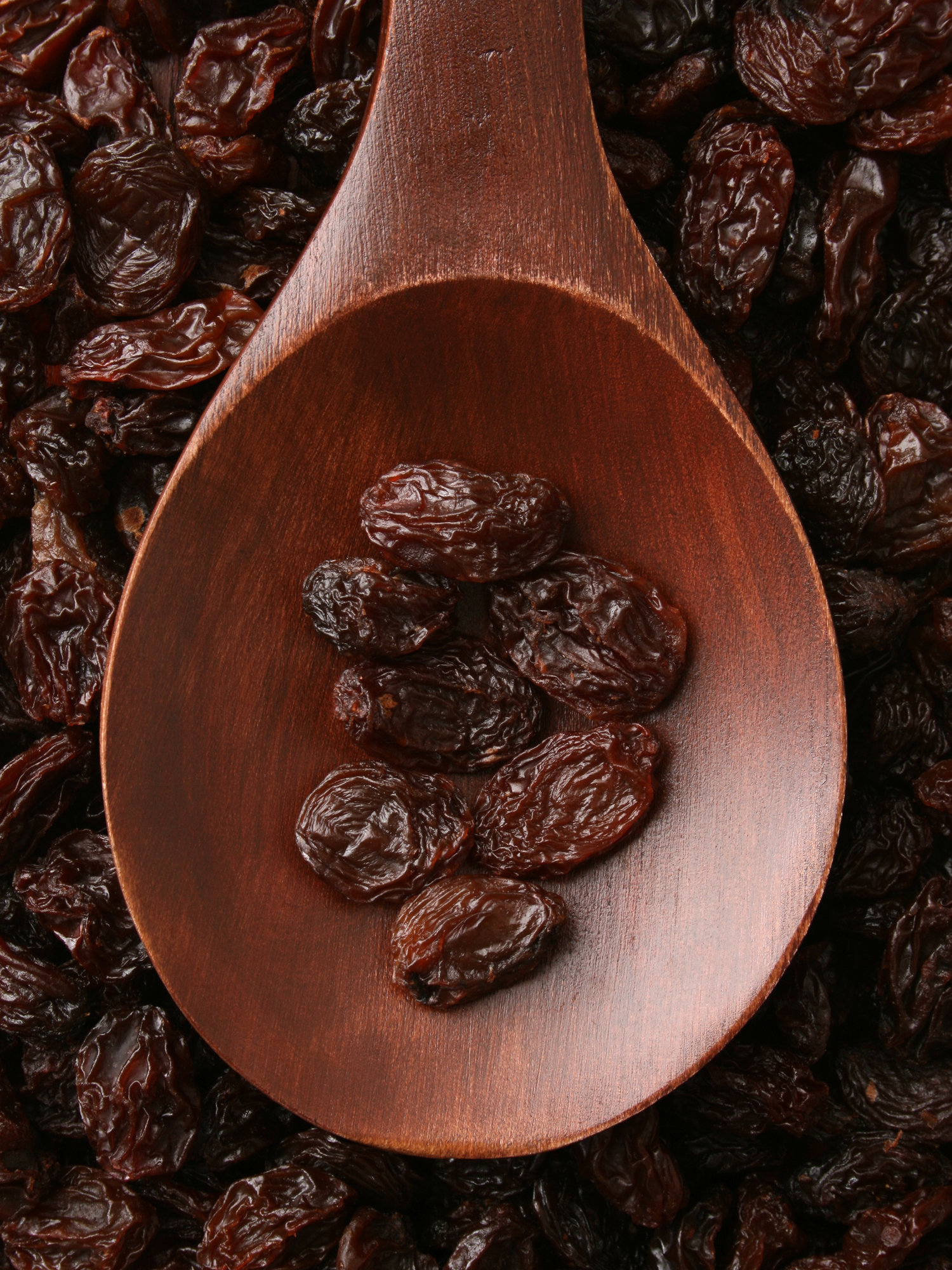
Like prunes, raisins are a dried fruit that's a rich source of fiber and can help you go. Fiber will increase the size and weight of your stool, making them easier to pass, preventing constipation. However, unlike prunes they don't contain sorbitol, which can induce bloating. You can also opt for other dried fruits like apricot that are also rich in fiber.
Raisins make a great extra ingredient in many dishes.
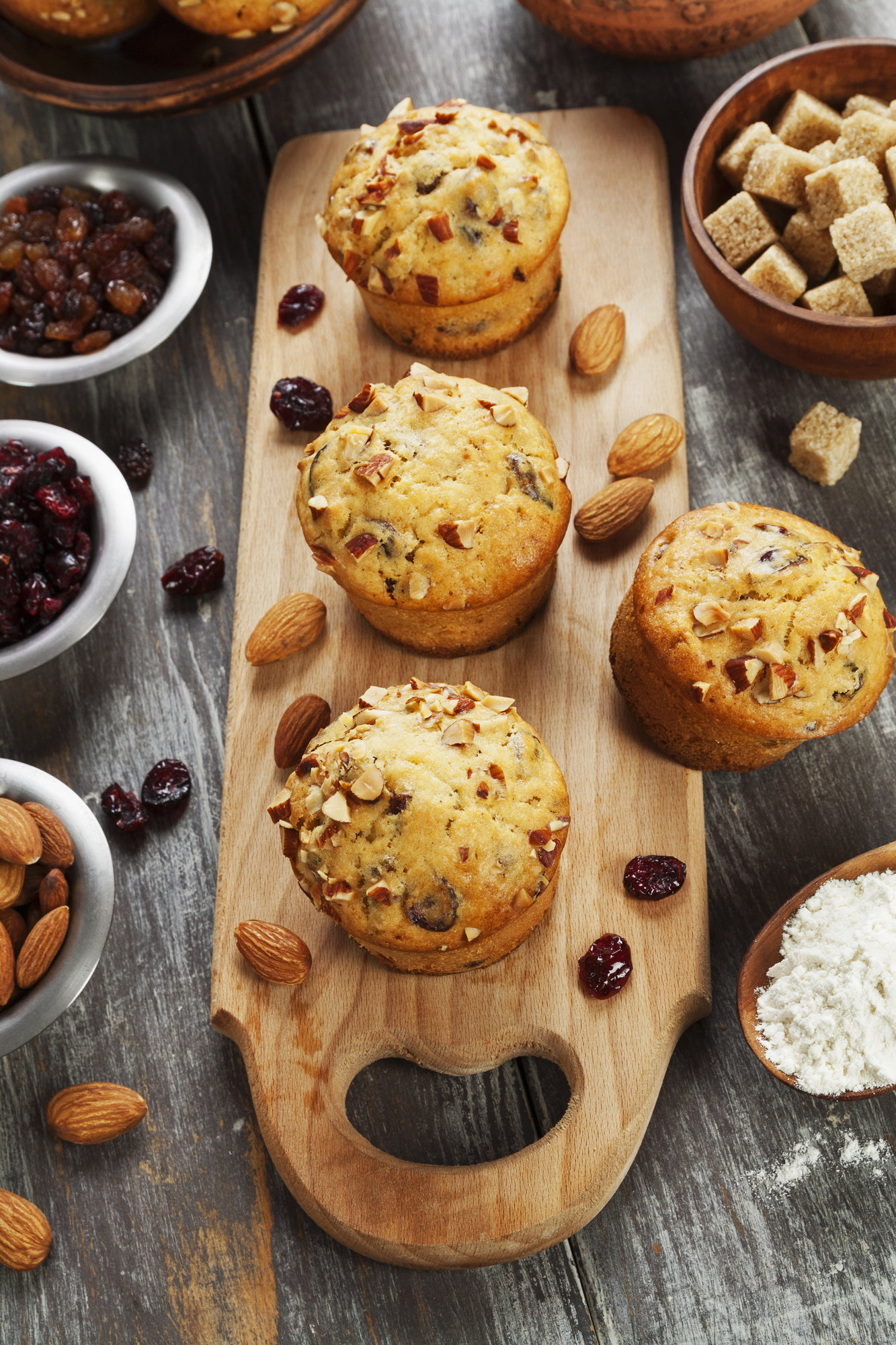
You can throw raisins into a salad, bake them into muffins or add them to a dish, like pasta. You can also make your own raisins at home by placing grapes on a tray and keeping them out in the sun for 2 to 3 days. But beware of having too many, since raisins pack a lot of sugar.
Though beans may also cause gas and bloating, they also help get things moving.
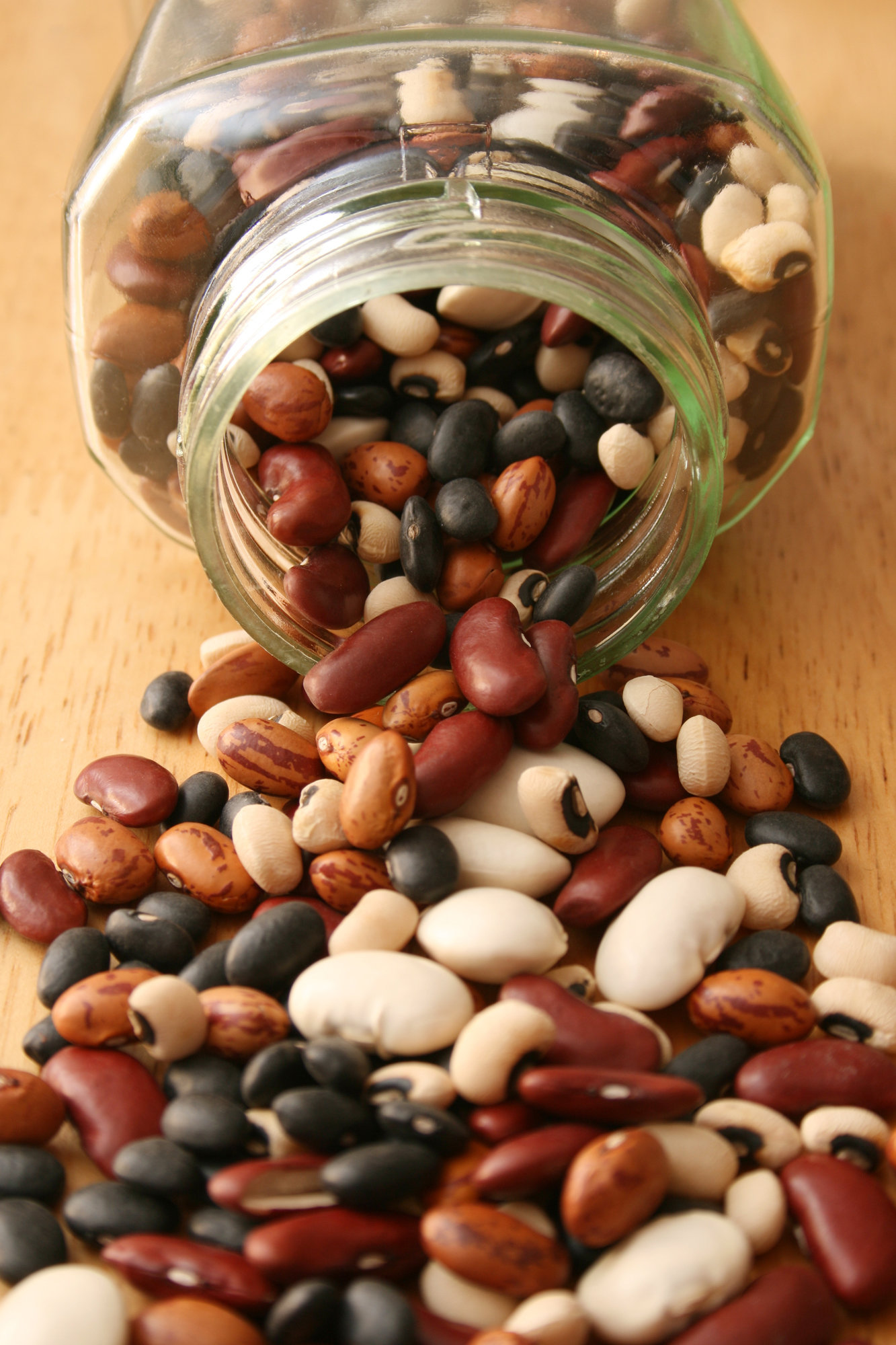
Beans act as a mild laxative because they contain resistant starch. This fiber-like starch helps balance bacteria in the GI tract and helps the colon move waste along faster. To avoid the gassy effect of traditional beans, you can opt for green beans, which have a lower amount of protein and carbs, but are still a good source of fiber.
Beans can complement almost any dish.
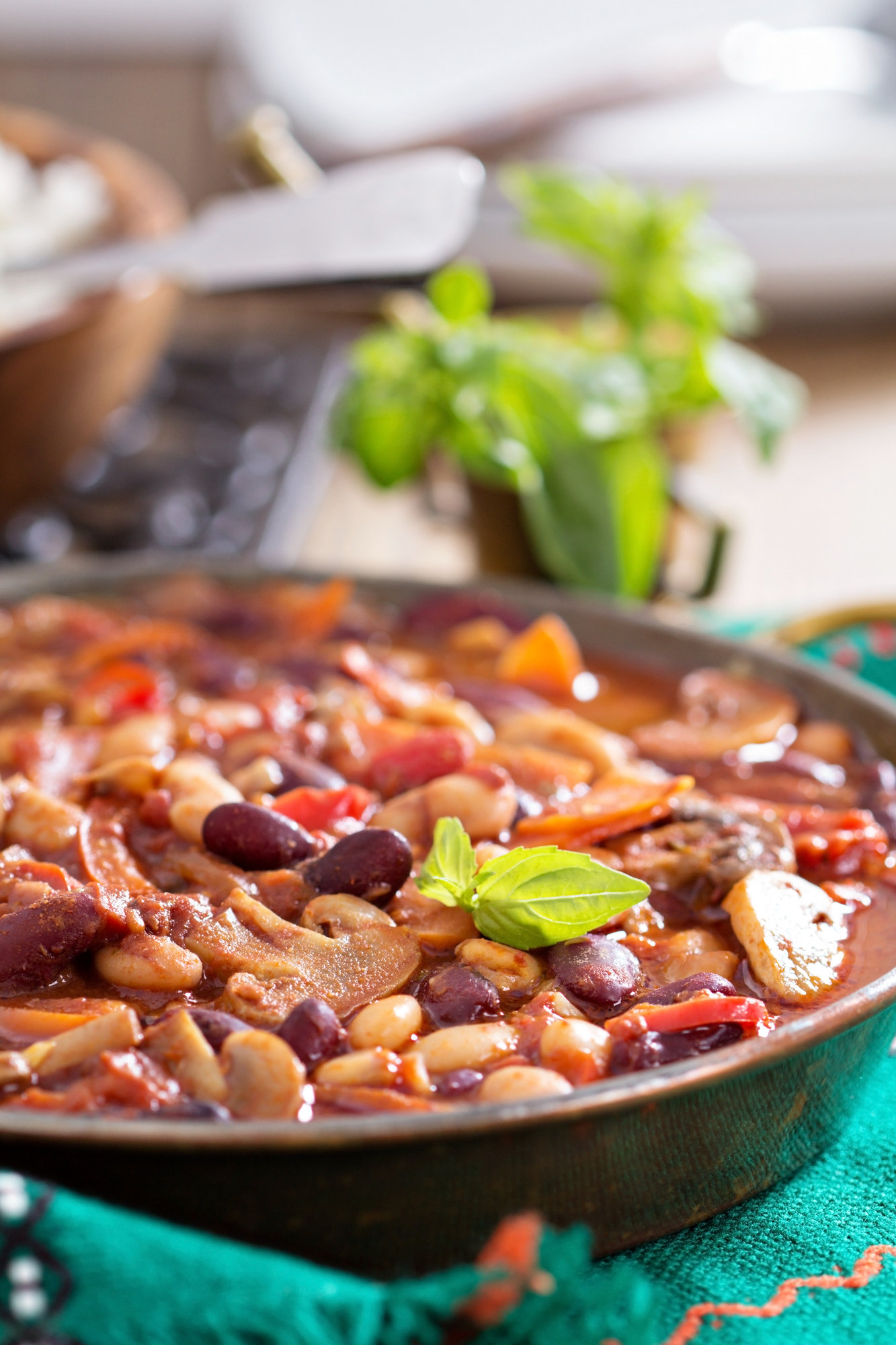
You can cook beans into a rice to chef up a side for your serving of meat or you can skip your meat or legume dish altogether and replace it with a bean dish once or twice a week. You can also add cooked beans to salads or follow recipes to make bean soups or stews.
Probiotics, found in foods like yogurt, can provide the good bacteria your gut needs for balance.

Probiotics can increase the rate at which you head to the bathroom because the bacteria act as a regulator for your stomach. They function as little microorganisms that help break down fiber, helping you go more quickly. Other options that contain probiotics include kefir, fermented vegetables like kimchi and sauerkraut.
Make sure to look into the brand of yogurt you’re buying.

Not all brands of yogurt will carry live probiotics, but some popular brands that do carry them are Activia, Dannon and Stonyfield. You can also choose to make your own homemade Greek yogurt by using regular yogurt. To do this, you'll throw regular yogurt in a filter cone lined with coffee filter paper and refrigerate it for at least two hours (or overnight).
Taken orally or used in a bath, Epsom salt can help relieve constipation.
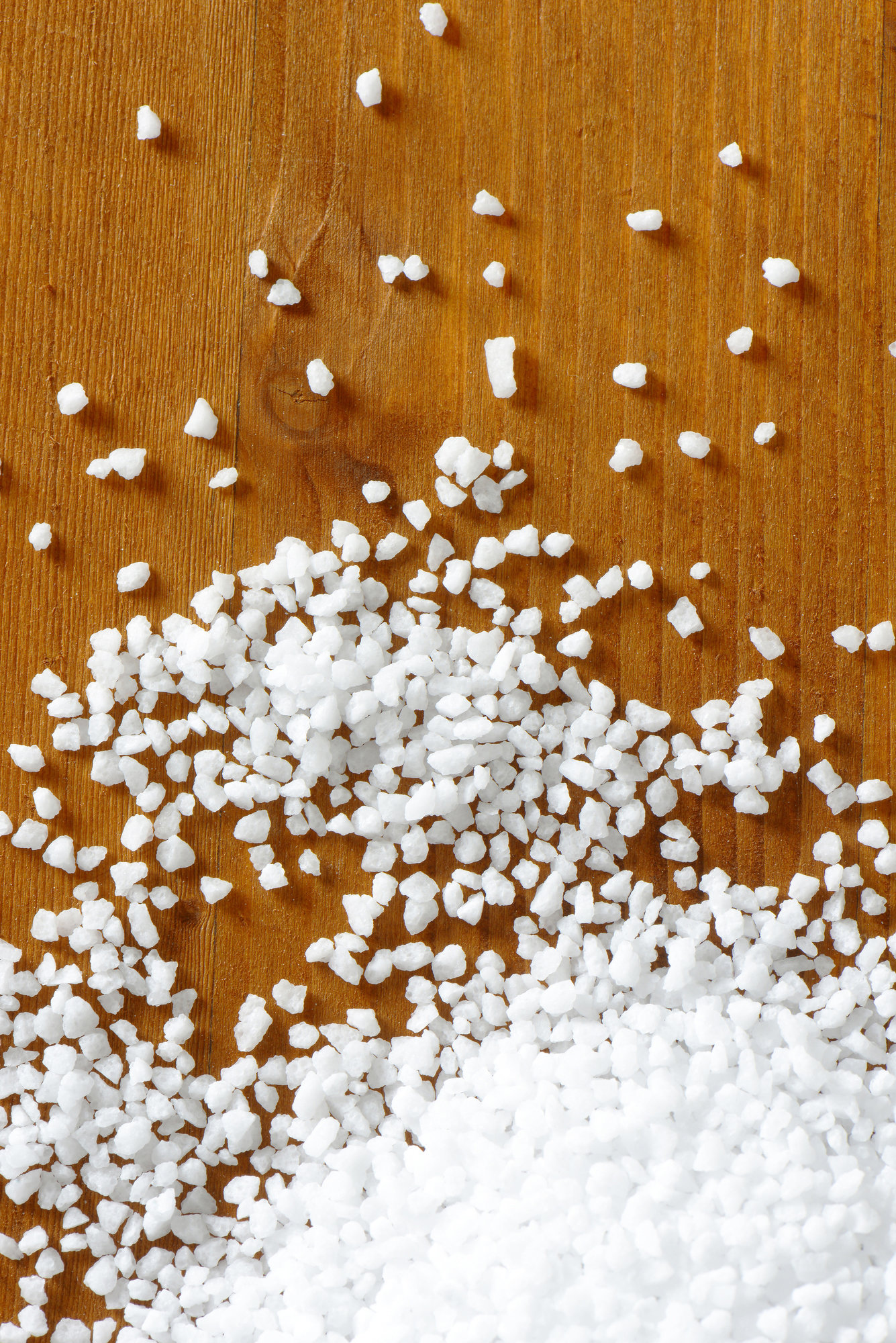
By consuming Epsom salt, which differs from table salt since its made from magnesium and sulfate, you'll increase the amount of water in your intestines, which can soften stool and make it easier to pass. It creates water pressure in the colon, which can then push out fecal matter. If you're going to take it orally, you should always use plain varieties.
When using epsom salt as a remedy, make sure to follow dosage guidelines.
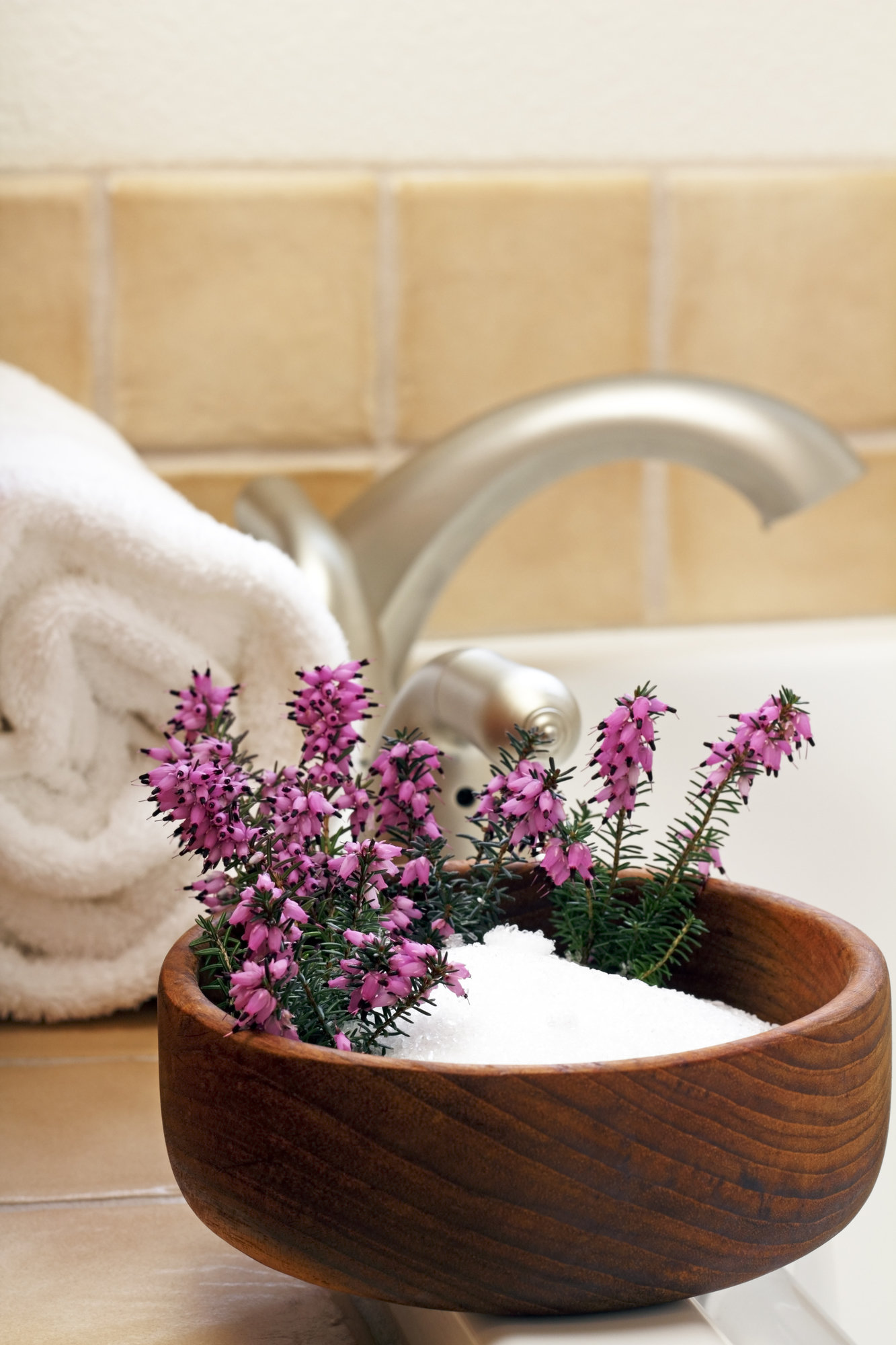
To take epsom salt by mouth, you should dissolve 2-4 level teaspoons of Epsom salt in 8 ounces of water and drink it immediately, but don't take more than 2 doses a day. You can also relieve constipation by soaking in a bath of warm water mixed with 5 cups of Epsom salt. You skin will absorb the magnesium, relax your gut and possibly induce a bowel movement.
Ginger can help reduce gas and bloating, while easing constipation.
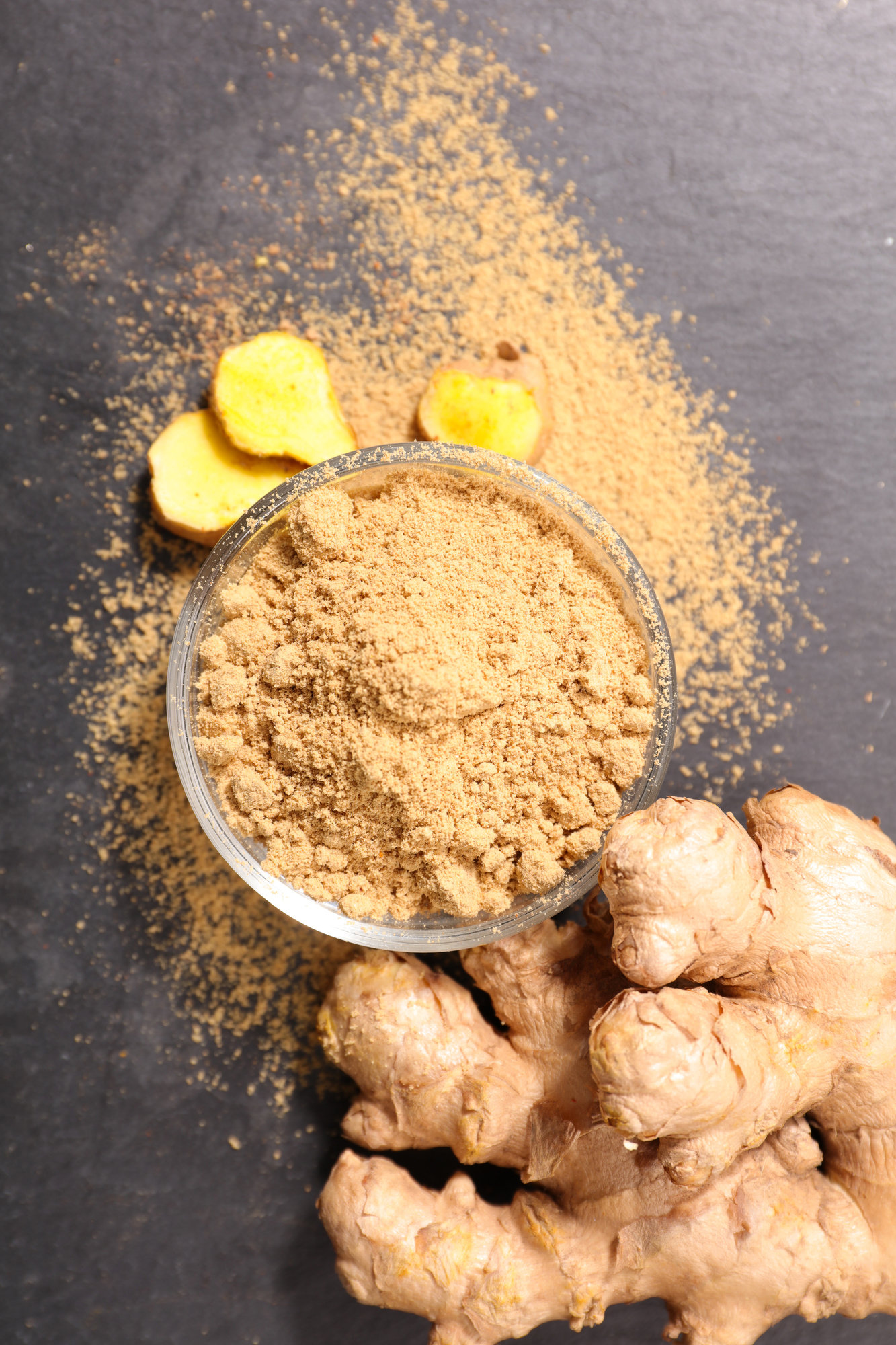
Ginger contains sesquiterpenes that can help soothe digestive spasms. Ginger is a "warming" herb and it causes the body to generate heat, which can aid in speeding up digestion. Ginger can also be useful for a host of other stomach problems including nausea, morning sickness and upset stomach.
Ginger can be consumed in several ways, including drinking it as tea.
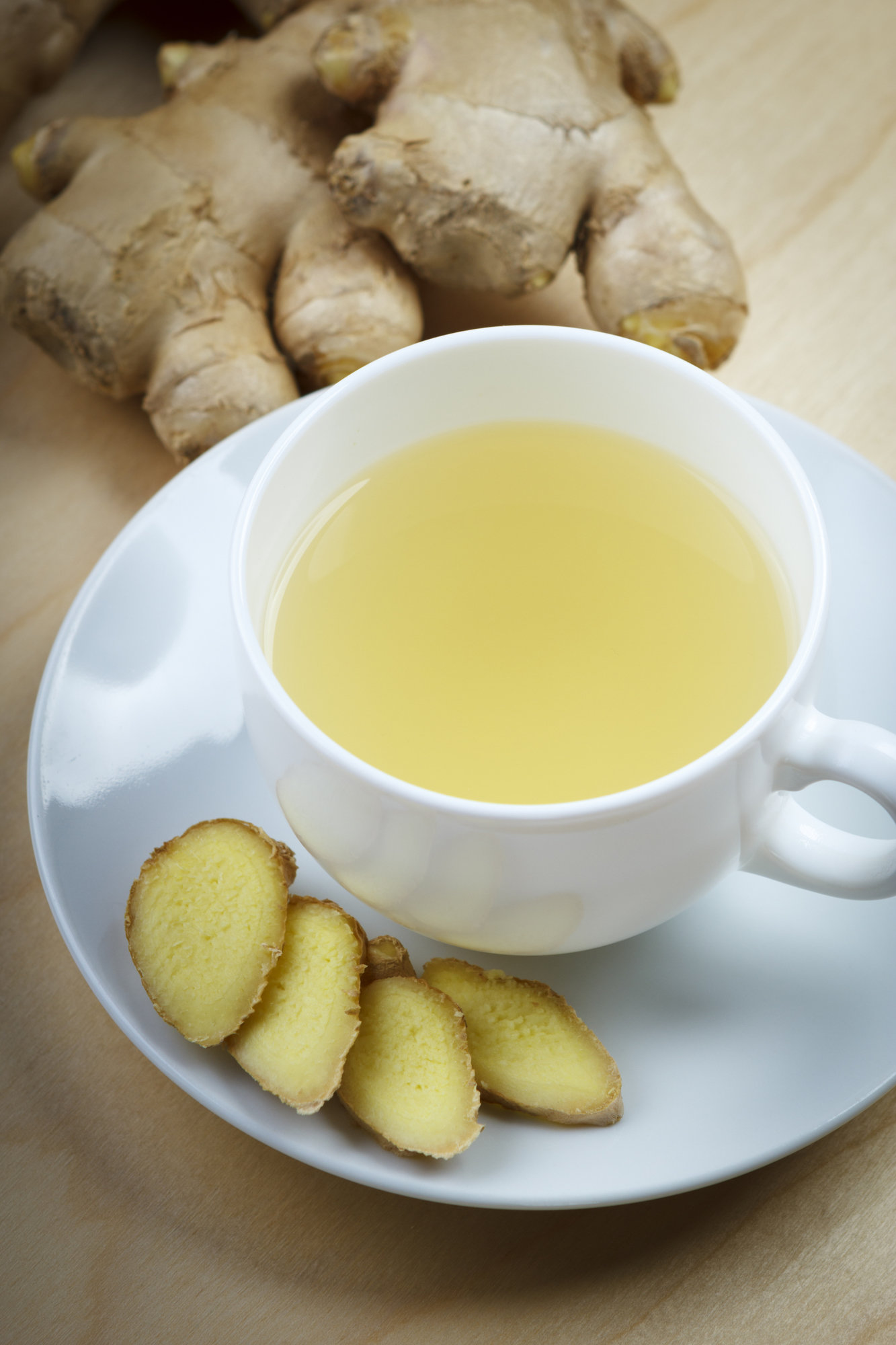
By having ginger as a tea, the hot water can help stimulate digestion. You can also add a drop of ginger to your morning smoothie or you can use it topically. To use it on your skin, dilute ginger in a carrier oil and massage it onto your abdomen. This will promote enough relaxation to possibly spur a bowel movement.
Coconut oil may help food pass more quickly through the body.
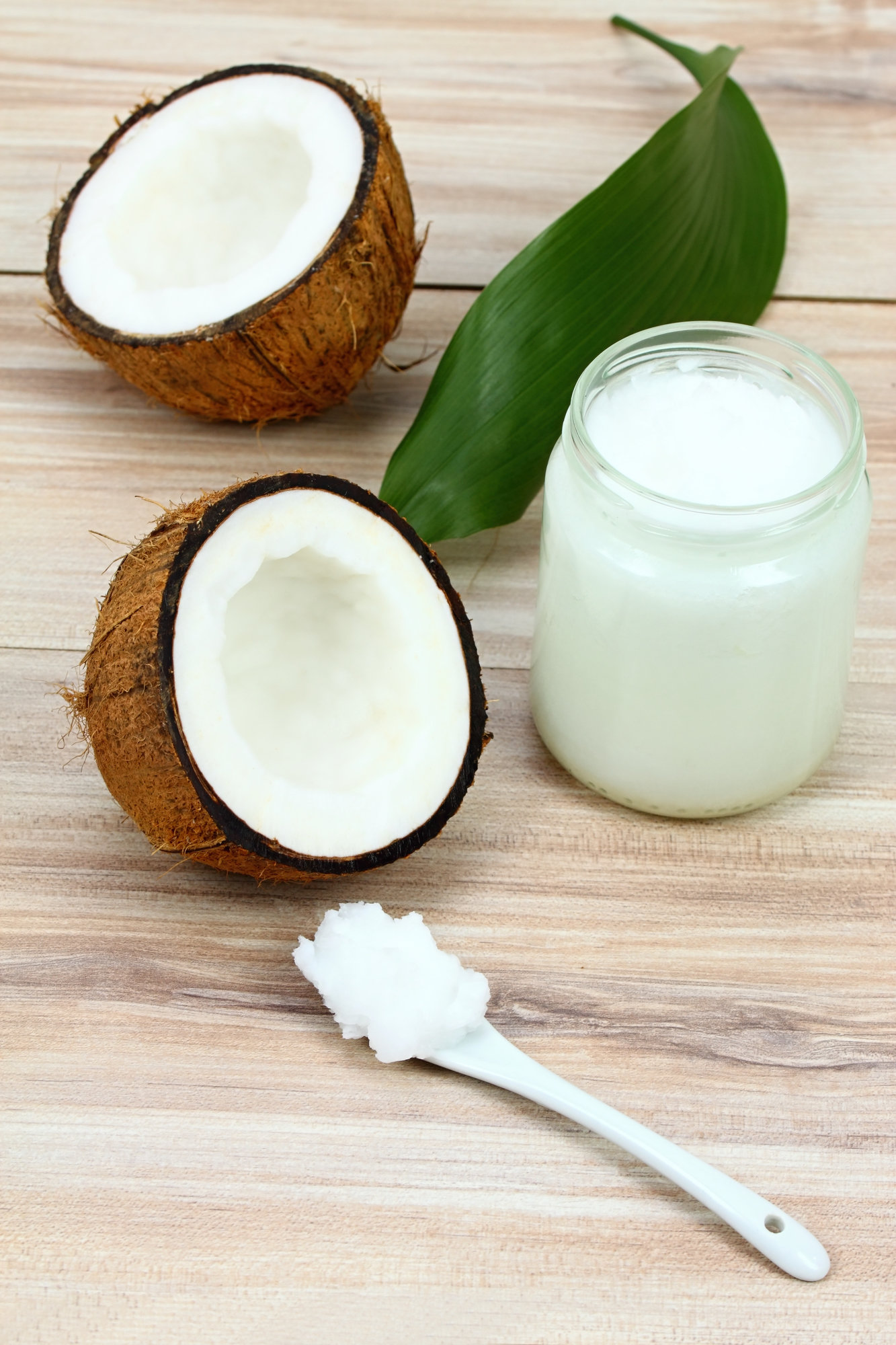
Coconut oil may increase metabolism and help resolve irregular bowel movements. Medium-chain fatty acids found in pure coconut oil can boost the energy of intestinal cells and help soften stool. Some added perks of consuming coconut oil are that it's great for your skin, can increase fat-burning and can boost brain function.
Coconut oil can either be used in its solid or non-solid form.
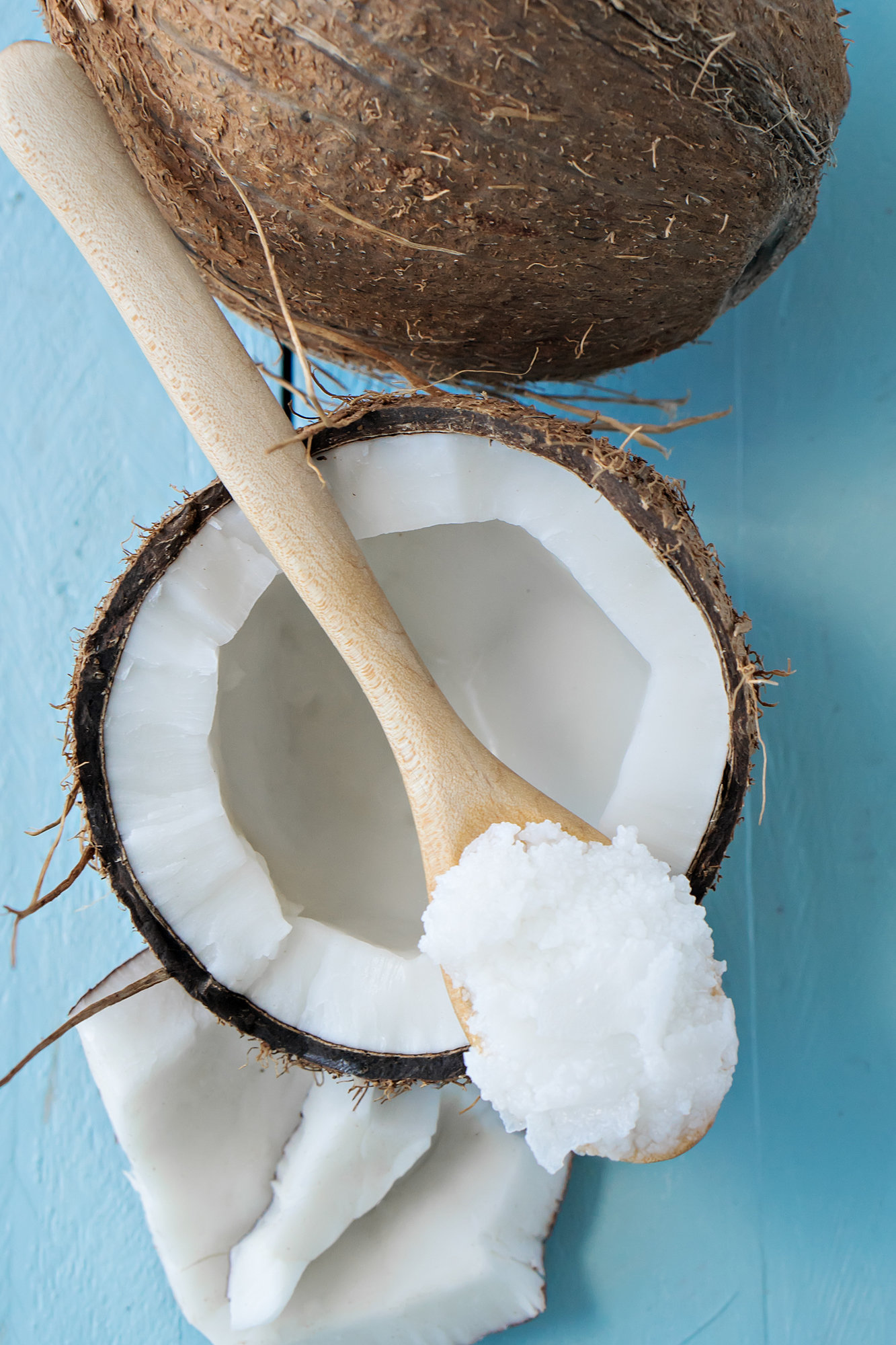
There are several ways to have coconut oil. You can place solid or semisolid oil in your mouth and let it melt or melt it on the stove over low heat and drink it. Coconut oil also makes a great addition to your coffee or tea, smoothies, oatmeal or yogurt, works as a popcorn topper instead of butter, or can be used as a cooking tool instead of using other oils.
Blackstrap molasses is a superfood that can make it easier for you to head to the toilet.

Blackstrap molasses results from the third boiling of sugar cane juice. It contains many vitamins and minerals that are good for your health like iron, calcium and magnesium– especially useful for constipation relief. The thick syrup also has other uses such as serving as a diabetes-friendly sweetener, boosting bone health and functioning as a hair de-frizzer.
Having blackstrap molasses before bed may ease constipation by morning.
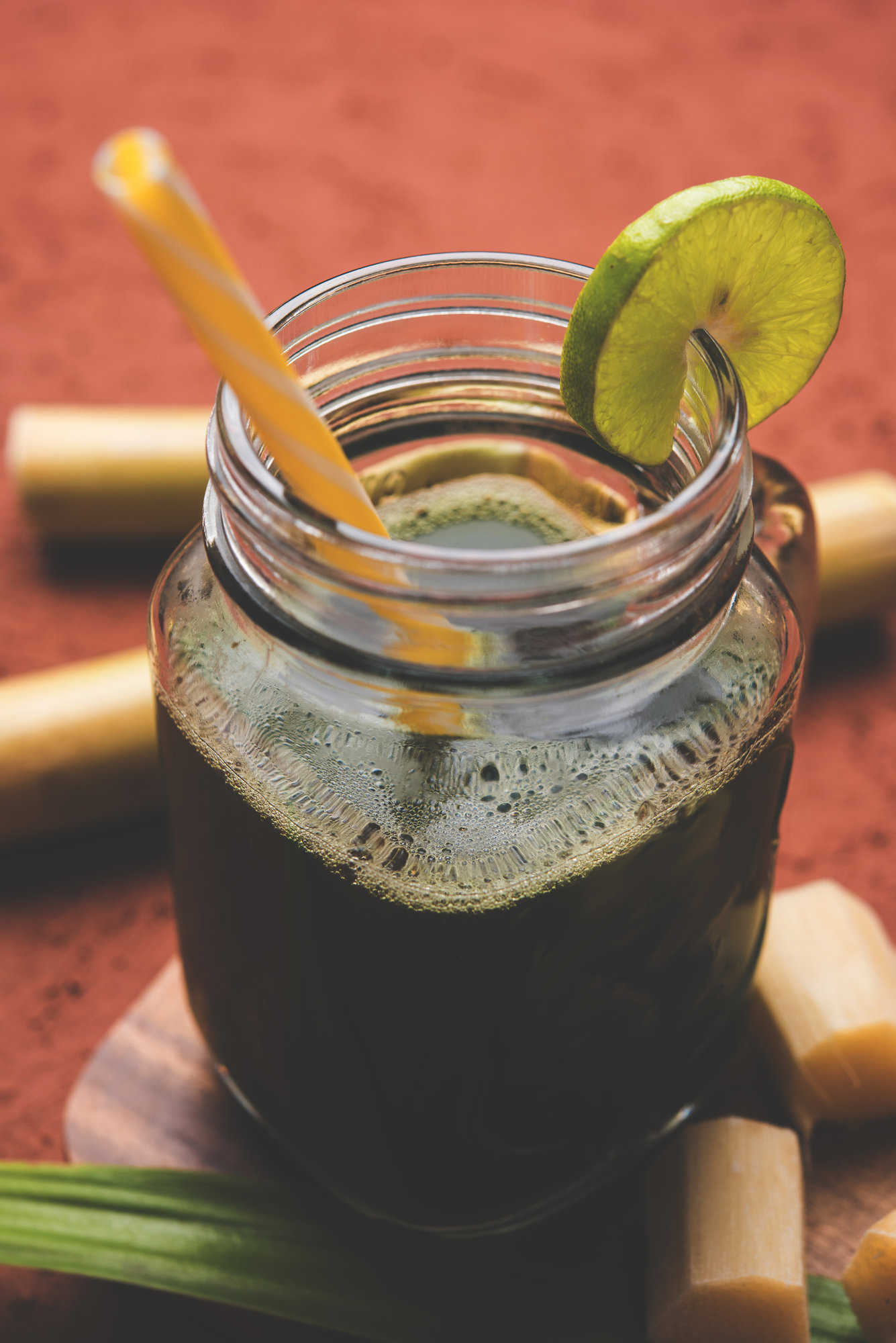
To get your digestive system going, you can take two tablespoons of molasses before bed, but don't use it daily as it's really high in calories. If the taste of the molasses is too strong, you can also dilute it by adding it to milk, fruit juice and even prune juice for extra relief.
For a fix that works quickly to relieve constipation, try castor oil.

Ricinoleic acid, the main fatty acid in castor oil, helps receptors that bind to the walls of the intestines to contract and push out stool. Castor oil can also push the uterus to do the same, so pregnant women should definitely avoid this remedy. Because it can also interfere with certain medicines, you should speak to your doctor before taking it.
Because castor oil works pretty quickly, you should take it by day.
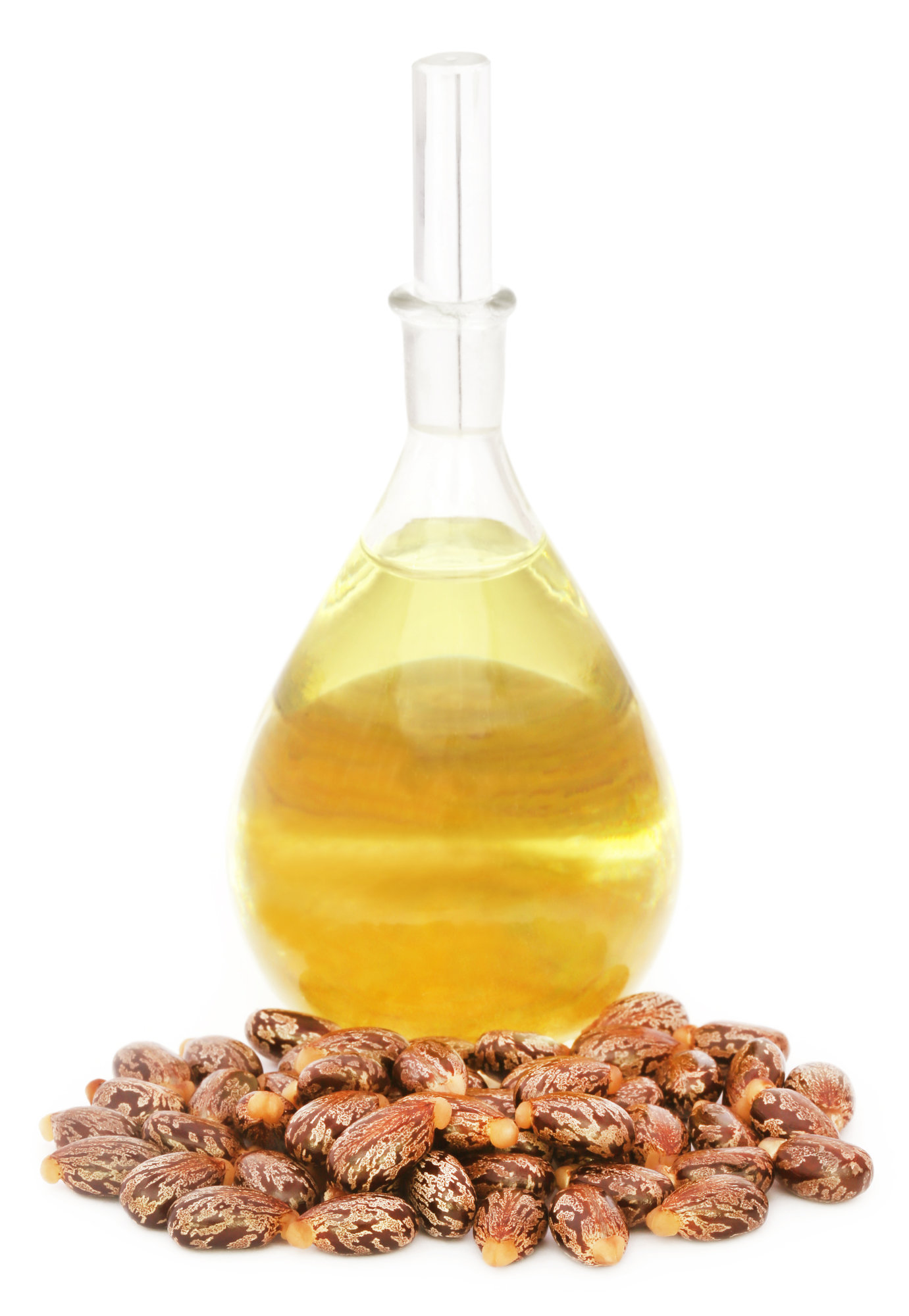
The results of taking castor oil are usually present within two to six hours. The dosage for adults is 15 mL. Since its taste can be pretty strong, you should either cool it in the fridge for at least an hour or mix it into a glass of fruit juice. It shouldn't be taken long term, as it can have the opposite effect and lead to chronic constipation due to a reduction of muscle tone in the intestines.
Oatmeal is a great healthy breakfast that can also spur constipation relief.
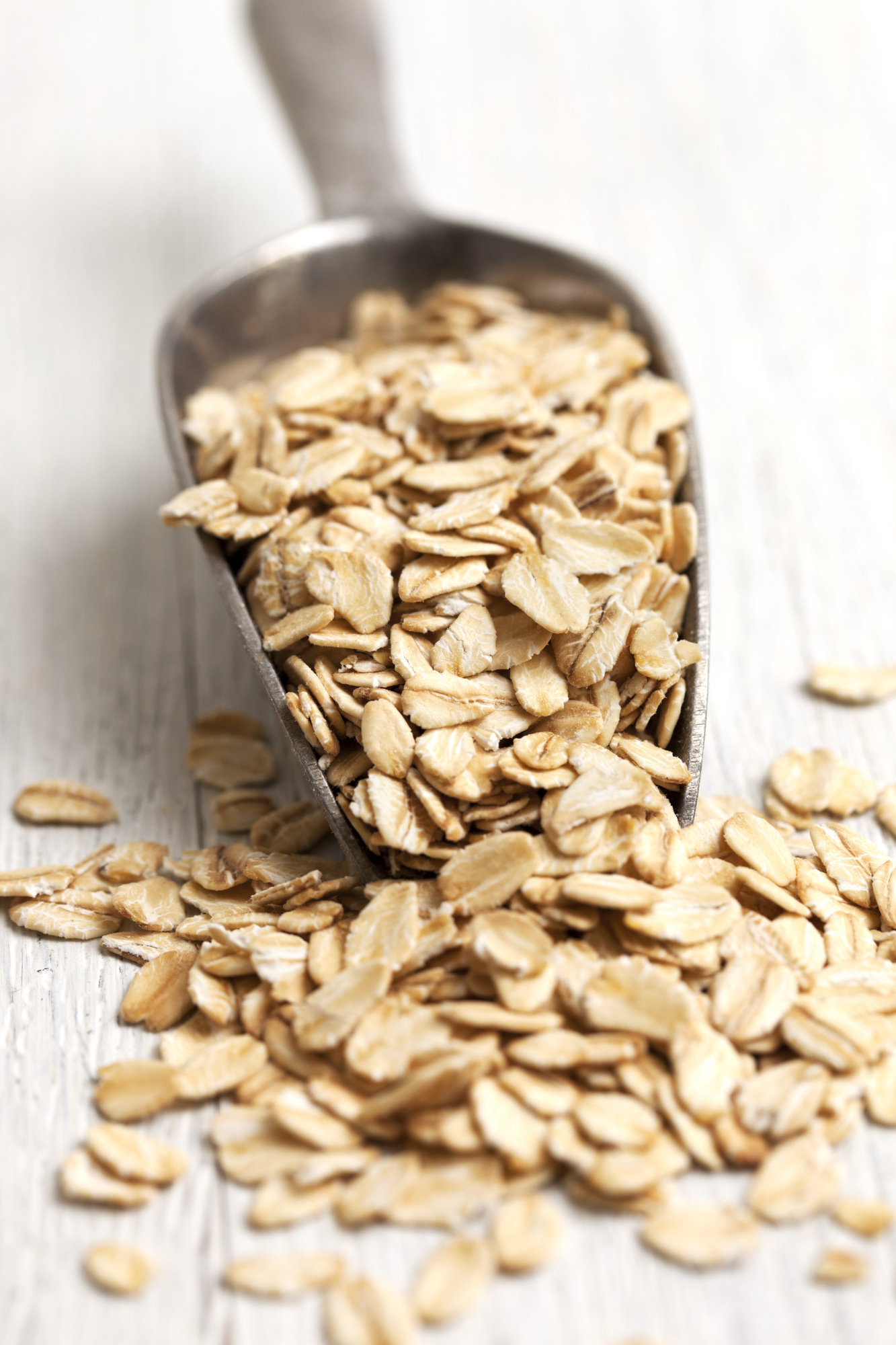
A high-fiber diet helps to prevent constipation. Oatmeal contains a high amount of insoluble fiber that can add bulk to your stool and trap water that can make your stool softer. This fiber will help move along any foods that you have consumed by grazing along the linings of the stomach.
You can add dried fruit to your oatmeal to add to its constipation-fighting properties.
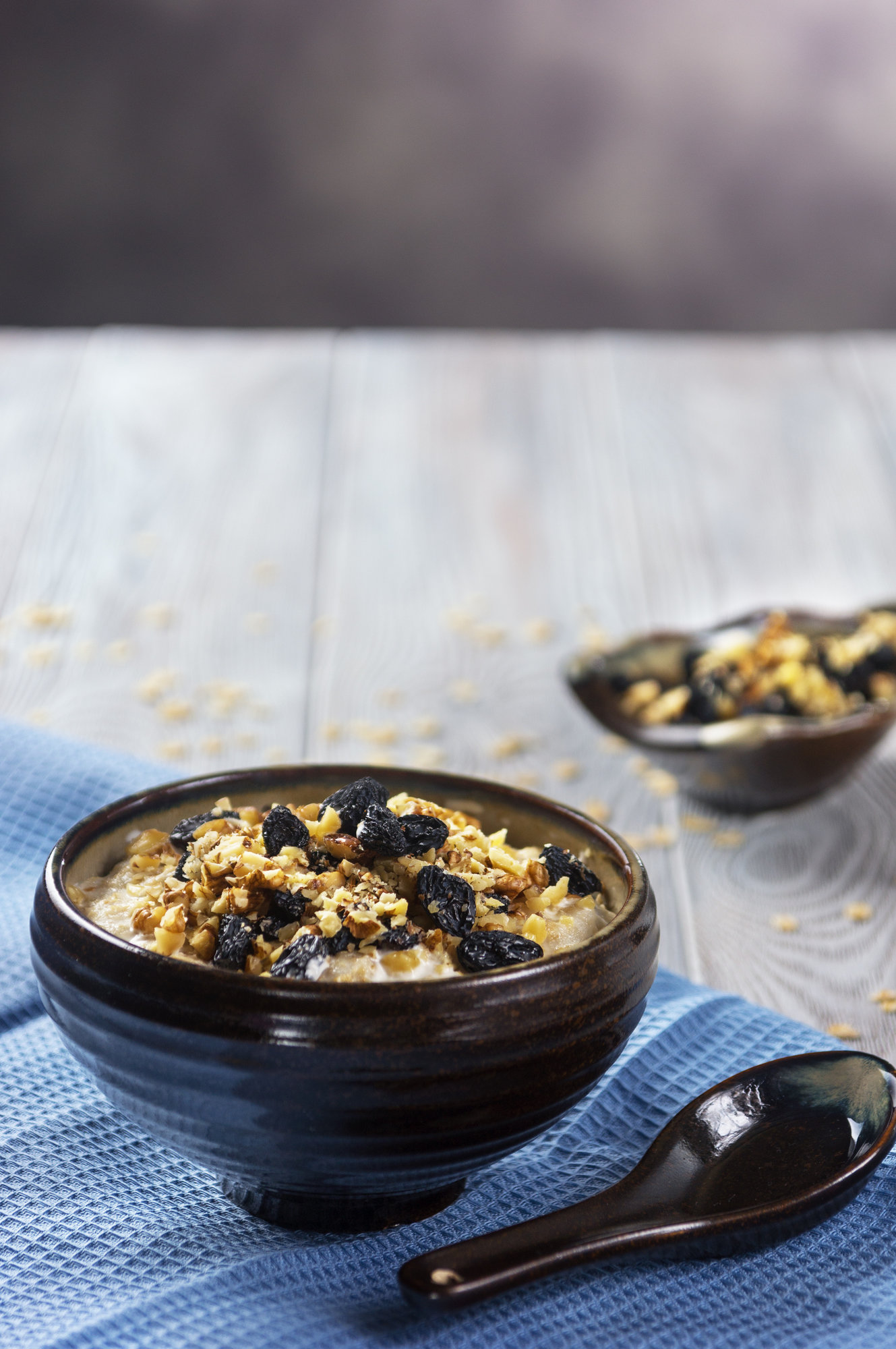
Raisins can spruce up any bowl of oatmeal. One cup of regular or quick oatmeal will carry about 2 grams of the insoluble fiber that eases constipation. Make sure to also drink an adequate amount of water, since not doing so can actually cause constipation, diarrhea, bloating or gas as your body adjusts to the new fiber intake.

